
















Previously known as Easy-Fill™, the new-look GrowinBag™ is the number one choice for growers throughout the MENA region for over 25 years.
Manufactured with the same innovative design that enhances plant health from the roots up, discover a durable, environmentally friendly solution to boost the efficiency of your plant stock.
Our GrowinBag™ is made from top quality prime virgin materials that are 100% recyclable, making them perfect for organic agriculture.
Rigorously tested in the harshest climates, all our materials are UV-stabilised to deliver superior strength and durability.
A name you can trust
Save water and boost plant health with side drainage holes that assist in air root pruning, while delivering superior drainage and plant growth.
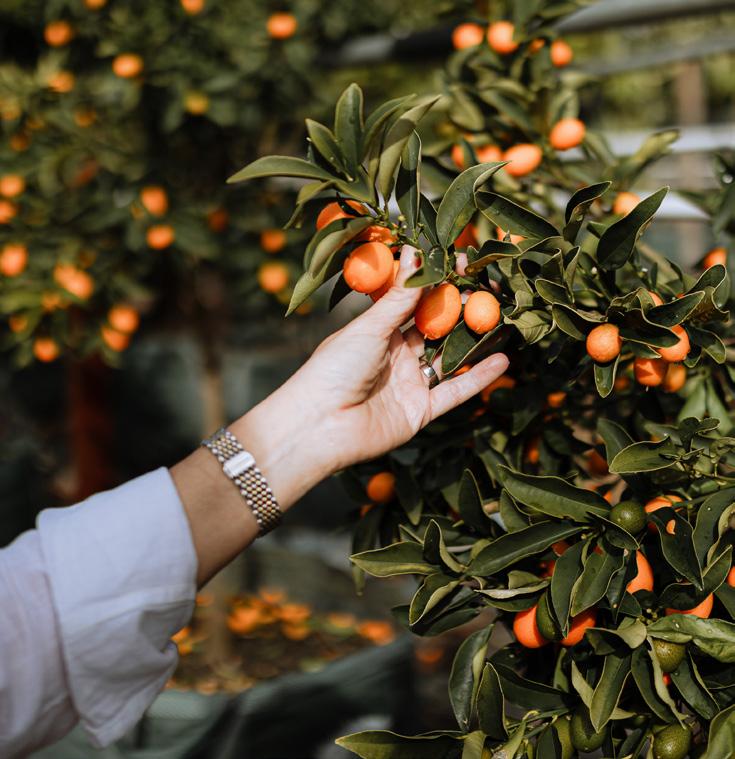
The easy-to-use design with an innovative round bottom makes for easy filling and improved stability, anywhere on your site.
Fully customisable to any size or shape. Add your company name or logo for a custom branding approach.
Previously known as WHS Australia (Wangara Horticultural), Growinnovate is the exciting next step in our company’s journey. Our bold new brand direction aligns with our position as the established leader of sustainable, quality products, matched with unrivalled knowledge and passion.
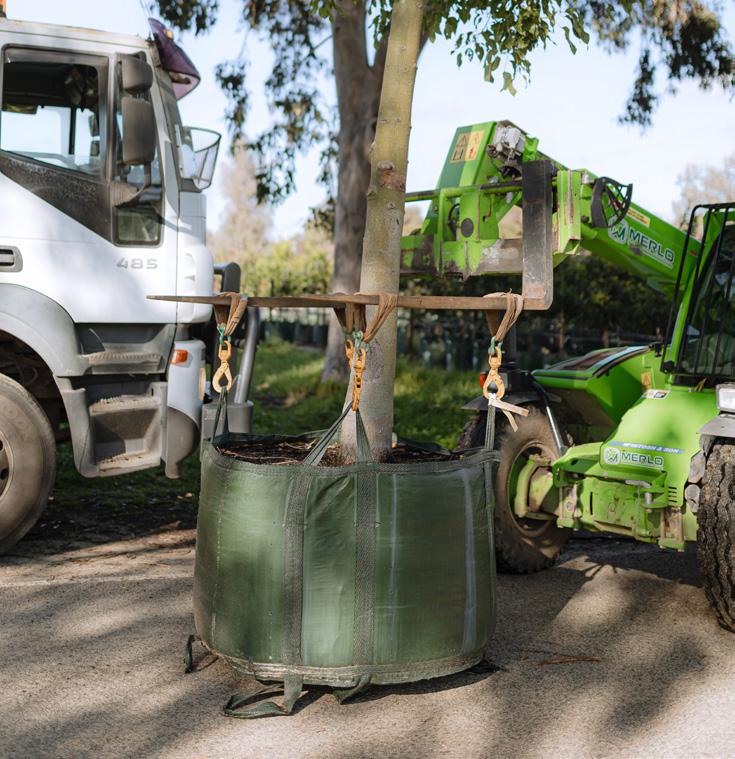
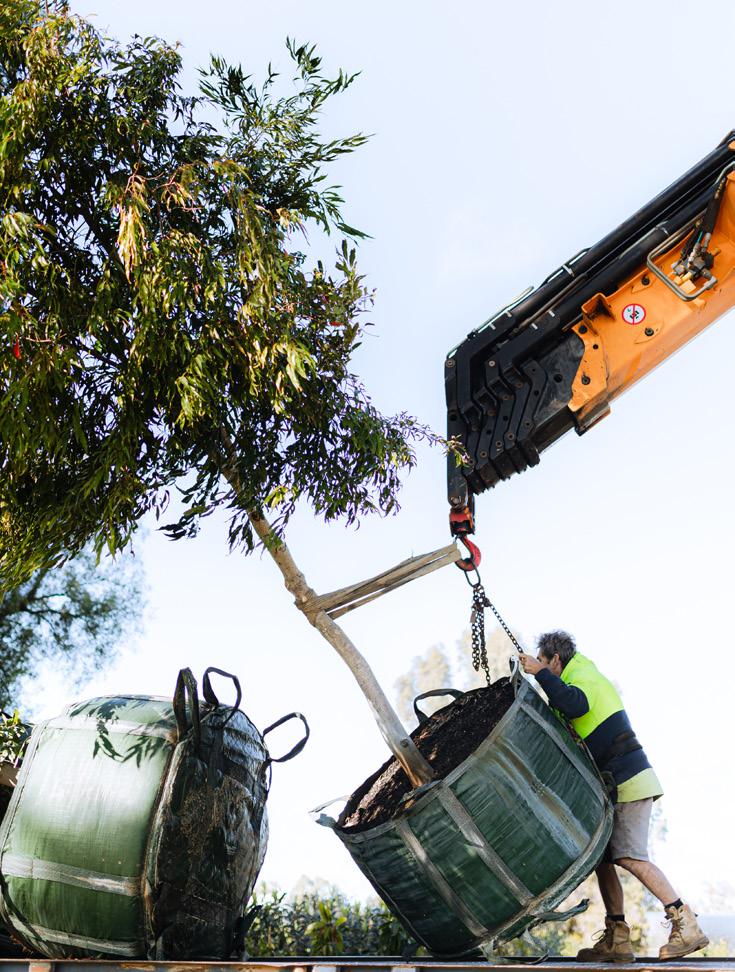
Managing Editor M. Matt
Associate Editors
Jessie Jorge
Dr. Ann Matt
Assistant Editors
Raseena Navaskhan
Loimee De Leon
Contributors
Dr. Hansel Geo Thomas
Neville J. Chandler
Registered Office
Matt Media Intl. Ltd. 12 Gateway Mews London N11 2UT
United Kingdom
US Office
Matt Media (USA) LLC. 1713 E. Morgan Court Gilbert, Arizona 85295
Middle East Offices
Matt Media LLC.
Sharjah Media City
United Arab Emirates
Al Saad Adv. & Publishing LLC P O Box 25694, Sharjah United Arab Emirates
info@gulfagriculture.com www.gulfagriculture.com
Gulf Agriculture is a publication from Matt Media Intl. Ltd. (UK) and is read by agri professionals, farm managers & owners, landscape consultants, contractors, agri-equipment suppliers, horticultural engineers, greenhouse managers, agronomists, veterinary surgeons, ministries, poultry & dairy breeders, importers, distributors, manufacturers and wholesalers of food and agri inputs.
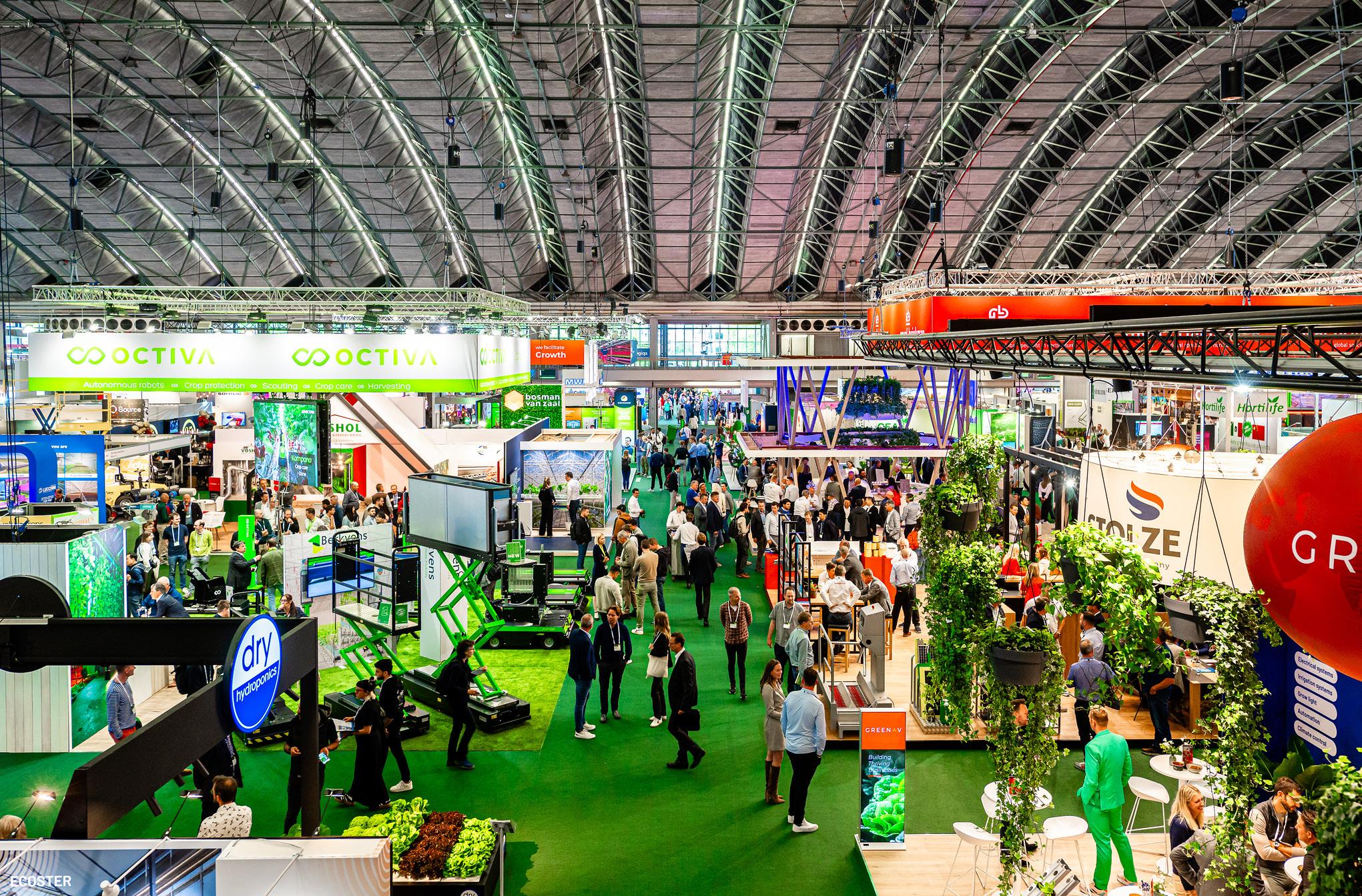



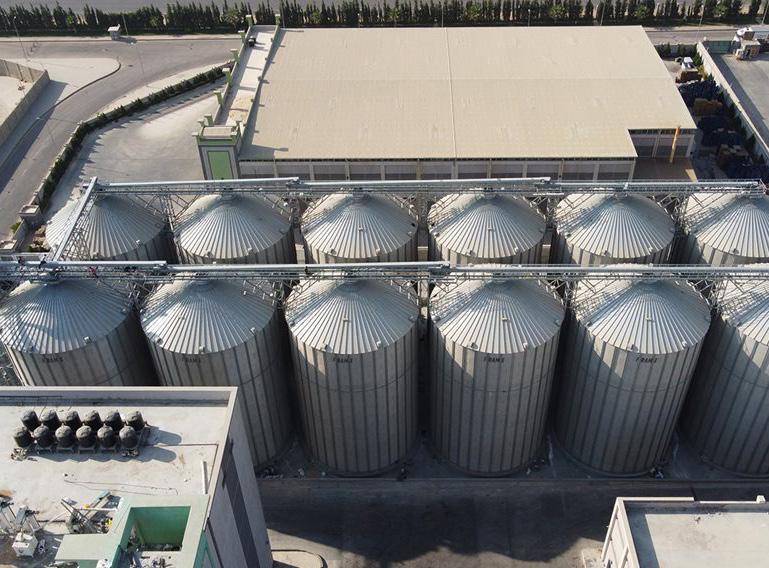
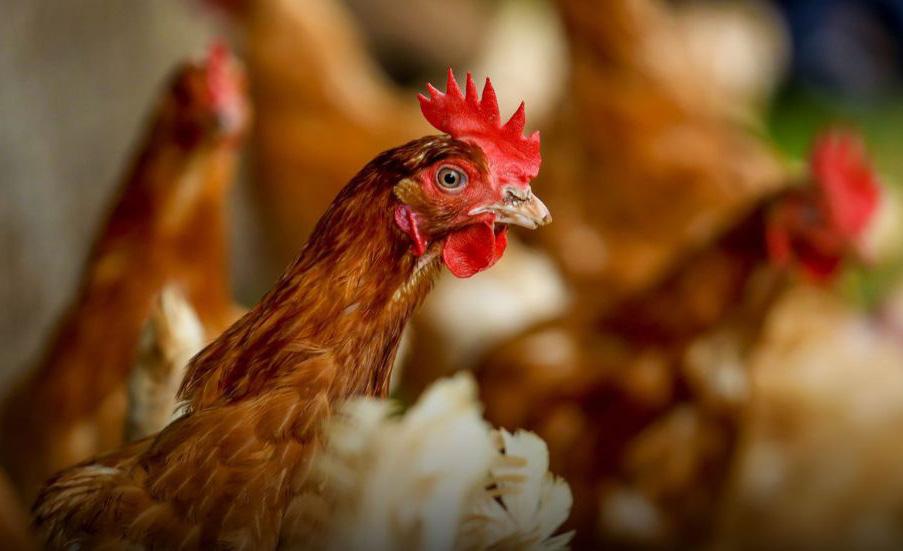


Innovative equipment born from our long experience in the preparation of soils, both for minimum tillage and deep work. Suitable for low Hp tractors without losing the main focus of our machines: elevated productivity connected to costs reduction and lower impact to environment.
26011 Casalbuttano (Cremona) - ITALIA
Via Giovanni Paolo II, 12
Tel. +39 0374 362680 Fax +39 0374 362280
info@ma-ag.com
www.ma-ag.com maagmacchineagricole
The combination of different tools permits to prepare the soil in one passage, both on minimum (15 cm working depth) to deeper tillage (up to 45 cm) according to the farmer’s needs.
FEATURE
Front Straight Anchors Open the soil by working from 15 to 45 cm
Star Rollers Break the clods and residues
Cage Rollers Levelling for a perfect soil
3RD EDITION OF ABU DHABI AGRICULTURE AND FOOD SECURITY WEEK TO BE HELD NEXT NOVEMBER
Under the patronage of His Highness Sheikh Mansour bin Zayed Al Nahyan, Vice President of the UAE, Deputy Prime Minister, Chairman of the Presidential Court and Chairman of the Board of Directors of the Abu Dhabi Agriculture and Food Safety Authority (ADAFSA), the third edition of Abu Dhabi Agriculture and Food Security Week (ADAFSW) will take place from November 26 to 28, 2024, at ADNEC Centre Abu Dhabi. The event will witness extensive international participation from policymakers and leading global companies specializing in the sector.
Organised by ADNEC Group
in collaboration with ADAFSA and the Food and Beverage Manufacturers Group (FBMG) as the Knowledge Partner, ADAFSW will feature a series of specialised exhibitions and conferences, including the third edition of ADIFE 2024, the tenth edition of ADDPE 2024, and the inaugural World Food Security Summit. The summit is expected to attract a distinguished gathering of government officials, policymakers, leading experts, and specialists to discuss ways to advance the present and future of this vital sector. The week's activities will also include a number of new
accompanying events to showcase the latest global technologies in agriculture and food production.
His Excellency Saeed Al Bahri Salem Al Ameri, Director General of ADAFSA, affirmed that the current edition of ADAFSW embodies the keenness of His Highness Sheikh Mansour bin Zayed Al Nahyan, Vice President of the UAE, Deputy Prime Minister, Chairman of the Presidential Court, and Chairman of the Board of Directors of ADAFSA to strengthen food security at both local and global levels and support sustainable economic development.
Jordan Capital and Investment Fund (JCIF) announced the signing of an investment agreement to acquire a minority stake in Sinokrot Poultry Farms (Sinokrot); one of the largest vertically integrated players in poultry farming and production in Jordan. The investment primarily aims to diversify Sinokrot’s operations by establishing a new feed additives manufacturing facility in Aqaba - in partnership with Jordan Phosphate Mines Company (JPMC) - while expanding existing
operations.
Founded in 1962, Sinokrot specializes in poultry farming and production, leveraging over 60 years of proven experience and an extensive client base. The company provides a wide range of poultry products such as table eggs, hatching eggs, day-old chicks, grains like corn and soybean, animal feed, as well as vaccines and purifiers. Sinokrot operates through 12 farms across Jordan, in addition to one hatchery, bulk grain silos and one poultry feed factory. Over the years, Sinokrot succeeded in building a strong market position and brand name among local and export clients.
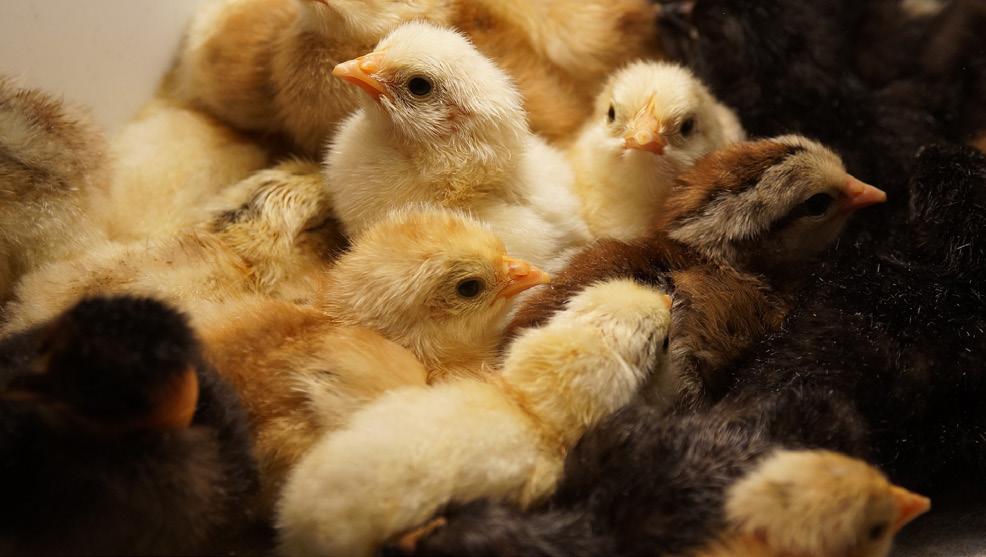
Alongside expanding current
operations and capacity, Sinokrot and JCIF are partnering with JPMC to develop an industrial facility for the manufacture of phosphatebased feed additives - namely monocalcium phosphate (MCP) and dicalcium phosphate (DCP) - in Aqaba. This pioneering joint venture empowers Sinokrot to diversify its product offering and access new markets and distribution networks, consequently supporting its longterm competitiveness.
“Our investment in Sinokrot will enable the company to considerably boost its export sales, particularly with the new feed additives facility anticipated to export the majority of its output. This will create over 70 new employment opportunities drawn mainly from local communities, bringing Sinokrot’s total employment to around 440,” commented JCIF Chairman, Hani Al-Qadi.
Natural Ventures, an impactfocused venture capital fund that addresses global food and water security, is pleased to announce the first close of its inaugural fund.
Natural Ventures takes an impact-driven approach to investing in and supporting the drive towards a more sustainable
The Aviagen® Ross® Middle East and North Africa (MENA) team recently held a customer seminar from 29-30 May in Amman, Jordan. Over 300 customers from Lebanon, Iraq, Syria, Jordan and West Bank attended the seminar.
Joining the group were Ross team members, including Erkin Erkmen, Ross International Commercial Manager, MENA; Murat Yakar, Regional Technical Manager, Turkey, Middle East and North Africa (TMENA); Ibrahim Ibrahim, Ross International Technical Manager, MEA; Muhammad Tarshan, Ross Technical Service Manager, MENA; Kifah Abutumeh, Technical Manager, Aviagen Anadolu; Xavier Asensio, Nutritionist; Javier Sanz Corella, Regional Technical Veterinarian; and Tolga Erkus, Incubation Specialist.
Throughout the two-day event, attendees were given practical advice in order to maximize the genetic potential and welfare of their birds and also to ensure they achieve the best return on investment with their Ross flocks.
future and stable climate by focusing on high-technology solutions. Addressing the interconnected challenges of climate change, population growth, and the transformation of water and food systems, the fund aims to accelerate the transition to a sustainable, healthy, and economical food
and water supply.
The team, comprised of seasoned investors with an excellent track record, experienced water and food experts, entrepreneurs, and leadership developers, invests in scalable technologies with proven commercial traction that directly impact water and food security.


The Ministry of Agriculture and Food Security Malaysia is intensifying its promotional efforts across the Middle Eastern region. In a bid to highlight Malaysia's agricultural and food industries, the Malaysian Agriculture Counselor Office in Dubai organised a highprofile business networking event at the prestigious Raffles Hotel Dubai. This event aimed to showcase the nation's agricultural prowess and promote the Ministry’s flagship event, Malaysia Agriculture, Horticulture and Agro-tourism (MAHA) 2024,
scheduled from 11 to 23 September 2024. Established in 1923, MAHA has evolved into Southeast Asia's premier agricultural exhibition, a testament to Malaysia's rich farming heritage. Celebrating a century of innovation and resilience, MAHA promotes sustainable practices and bridges urban-rural gaps. Vice Consul for Agriculture in the Consulate General of Malaysia in Dubai, Mr. Muhd Arif Jauhari, stated, “This year marks the centennial anniversary of MAHA EXPO. For a century, MAHA has been a beacon of agricultural innovation, education, and
community engagement. This monumental achievement underscores the profound legacy and impact MAHA has had over the past hundred years, from spearheading agricultural advancements to nurturing community spirit. This year's theme, ‘Harvesting Tomorrow Where Dreams Blossom,' underscores our dedication to sustainable agriculture, human capital, technology, agro-tourism, and investment. MAHA 2024 will feature a three-day trade show followed by a nine-day public exhibition, offering educational activities and interactive exhibits.”

Al
Vice Chairman of the Dubai Supreme Council of Energy, MD&CEO of Dubai Electricity and Water Authority (DEWA), and Chairman of the World Green Economy Organization (WGEO), has announced that the 10th World Green Economy Summit (WGES) will be held on 2 - 3 October 2024 at the Dubai World Trade Centre. Held under the theme ‘Empowering Global Action: Unlocking Opportunities and Advancing Progress.’ WGES, which is organised
by the Dubai Supreme Council of Energy, DEWA, and WGEO, will build on the outcomes of the previous editions by enhancing collaboration among all stakeholders.
“Under the patronage of His Highness Sheikh Mohammed bin Rashid Al Maktoum, Vice President and Prime Minister of the UAE and Ruler of Dubai, the World Green Economy Summit has, since its inception in 2014, supported global efforts to achieve a balance between economic development and environmental sustainability.
This is achieved by providing a pioneering global platform that brings together prominent experts, stakeholders, and decision-makers
in energy, economy, climate change, and green finance from all over the world. They exchange knowledge and experiences, strengthen partnerships, and discuss policies and proactive solutions that help accelerate the sustainable green economy.
The Summit also highlights the UAE’s leading role in enhancing global cooperation in facing climate change, supporting global climate efforts. It also showcases Dubai’s efforts in fostering comprehensive and sustainable development and transitioning to a green economy,” said Al Tayer.
The 10th WGES will focus on key thematic pillars, including Decarbonization; Clean Energy Advancements (including Green Hydrogen & Energy Storage); Climate Finance; Circular Economy; Using Technology to Tackle Climate Change; Youth in Climate Change, in addition to Food and Water.
The Gulf Petrochemicals and Chemicals Association (GPCA), the voice of the chemical industry in the Arabian Gulf, will recognize outstanding talent among GCC university students in agrinutrient sustainability as part of the 3rd GPCA Innovation Competition. Set to take place on the sidelines of the 14th GPCA Agri-Nutrients Conference from 10-12 September 2024 in Riyadh, Saudi Arabia, the prestigious competition will reward both undergraduate and postgraduate students from all universities, vocational and research institutes in Saudi Arabia, the UAE, Qatar, Kuwait, Bahrain and Oman.
dedicated to rewarding outstanding projects and ideas in agri-nutrients research for a foodsecure and climate-resilient planet. Students from across the region can submit their entry in the “Race towards Agri-Sustainability”.
To qualify for the competition, students must present an innovative solution to any of the following challenge: Circular Economy in Agriculture; Soil Health; Sustainable Resource Management; and Innovation and Emission Reduction in AgriNutrients Production. The GPCA Innovation Competition features two categories under chemical engineering, chemistry, and other
second and first place in both the undergraduate and postgraduate category during the 14th GPCA AgriNutrients Conference on 11 September in Riyadh, Saudi Arabia.
Dr. Abdulwahab Al-Sadoun, Secretary General, GPCA, commented: “We encourage higher education students from across the region to grasp this opportunity, gain exposure to the region’s burgeoning chemical industry and win a prize for their research dedicated to agrisustainability. As the industry contends with the dual challenge of feeding an ever-growing global population, it must address the need to lower emissions, protect the health of our soil and planet, and produce


Novonesis, a world leader in biological solutions, has announced a landmark distribution agreement with the Andermatt Group, recognized as market leaders in the distribution and manufacture of quality biological solutions. This partnership will enable farmers across Southern and Eastern Africa to get access to Novonesis's soybean inoculant, Cell-Tech®, for the 2024-2025 planting season. Cell-Tech® Technology contains specially selected rhizobia that can provide highly effective nodulation to enhance nitrogen fixation,
increasing yield potential as planting conditions change. Cell-Tech® has a four-day on-seed guarantee when applied with most common chemical seed treatments and is supplied in convenient liquid formulation for on-farm application.
The partnership will benefit from the expertise of both the companies – Andermatt’s strong farmer connects, wide distribution and agriculture expertise and Novonesis’ scientific heritage and dynamic portfolio of biological solutions. Through this partnership, Andermatt and Novonesis plan to bring
in more advanced biological solutions that promote sustainable agriculture and enhance farmer income.
The Andermatt Group, with established legal entities in South Africa, Mozambique, and Kenya, extends its reach to several other African nations, including Namibia, Malawi, Zambia, and Zimbabwe. This extensive network aligns with Andermatt's commitment to nurturing the continent through sustainable food production and bolstering local economies by exporting high-quality, residue-free produce.
EuroTier, the world's leading trade fair for professional animal husbandry and livestock management, will take place in parallel with EnergyDecentral, the leading international trade fair for decentralised energy supply, in Hanover, Germany, from 12 to 15 November 2024. Under the guiding theme ‘We innovate animal farming’, the trade fair offers an international technical programme on the latest developments in cattle, pig and poultry production. An additional area is dedicated to horses and addresses the current issues affecting horse farms. Farming professionals will also be able to explore the topics ‘Direct farm sales and on-farm slaughter’ as well as a range of professional topics in feeding. The DLG stand offers presentations and expert talks on topics such as sustainability, animal welfare, digitalisation and the promotion of young talent in agriculture.
Several expert stages are dedicated to dairy and beef production, where practical information and current project results will be presented during the trade fair. Starting with hygiene in the calf housing and the three pillars of dairy cattle feeding, the focus will be on how dairy farmers can balance falling milk prices and healthy feeding. Another focus will be on grassland management, crop recording and silage management. Relevant to farms with experiencing hot weather spells, EuroTier will present the options available on how to reduce heat stress in cattle and minimise antibiotics when drying off dairy cows. Digital assistance systems already play a major role in cattle farming. Further opportunities for sensor-based AI systems on dairy farms and other innovations for digitalisation in livestock farming will be presented.
The TopTierTreff feature is once
again the international marketplace for top genetics in Hall 11, where leading German and international breeding companies and organisations from the dairy and beef cattle sector will present breeding animals.
Automation and robotics take centre stage at the Barn Robot Event. Under the new FarmRobotix brand, seven feed pusher robots will be presented live as part of daily live demonstrations in a dedicated area. Both events are expected to attract interest from dairy and beef farmers at EuroTier.

Much of the MENA region continues to face the severe impacts of climate change, including extreme temperatures, droughts, and water shortages. With more than half of the MENA comprising of arid and waterdeficient regions, innovative and creative ways are crucial to help better use limited and untapped aquatic resources — as is already being done in Egypt, the largest aquaculture producer in Africa, according to USDA FAS.
WorldFish initiated an innovation hub at its Abbassa research and training facility in Egypt in 2019 to mobilize crosssectoral partnerships for developing cutting-edge innovations toward inclusive,
climate-smart aquaculture, a mission shared by SEC MENA's workforce and capacity-building programs.
SEC MENA has been an enthusiastic collaborator of WorldFish. Through its educational programs, SEC empowers farmers, producers, owners of fish farms, private hatcheries, and researchers. These programs are designed to elevate the aquaculture sector by integrating science, innovation, and sustainable practices. Egypt's recent marine fish hatchery management program is a testament to this approach. By engaging participants from diverse backgrounds and regions, the SEC and WorldFish are laying the foundation for a more sustainable and resilient aquaculture
industry in Egypt and the MENA region.
Sustainability is a crucial focus of the SEC's training programs. As highlighted by U.S. Ambassador Herro Mustafa Garg, the collaboration between USSEC and WorldFish aims to reduce aquaculture's carbon footprint, aligning with global efforts to combat climate change and ensure food security. This is critical as the aquaculture sector in Egypt has seen a surge in production, driven by the need to meet the growing demand for protein amidst economic challenges. The SEC's initiatives are instrumental in supporting this growth in a sustainable and environmentally friendly way.






































































































































































































































































































































FarmERP, a global leader in cutting-edge sustainable technology solutions, has announced a strategic partnership with Seiyaj Tech, a Saudi Arabian tech company focused on localizing green energy technologies from top international companies. The Memorandum of Understanding (MoU), signed in Riyadh, aims to expand FarmERP's influence and impact in Saudi Arabia, leveraging Seiyaj Tech's extensive business network and local expertise.
Saudi Arabia's agriculture sector faces unique challenges, including extreme weather, water scarcity, and limited resources. FarmERP,
with over 12+ years of experience in the Gulf region and extensive operations in Saudi Arabia, has developed tailored solutions to meet the specific needs of the region’s agribusinesses. This partnership will allow FarmERP to collaborate with leading companies and government organizations, providing them with the advanced technology necessary to thrive in these challenging conditions.
Seiyaj Tech boasts a distinguished history of partnerships with major Saudi Arabian government entities and prominent players in the private sector. Renowned for their
delivery of advanced software and hardware solutions, Seiyaj Tech empowers clients to achieve scalable growth. Through collaborations with leading global technology providers, they tailor cutting-edge solutions that meet specific local market requirements. This strategic alliance with FarmERP will notably expand their influence, strengthening efforts to advance agritech in the region. This aligns closely with Saudi Arabia's ambitious objectives for sustainable development and food security, underscoring their commitment to transformative technological solutions.
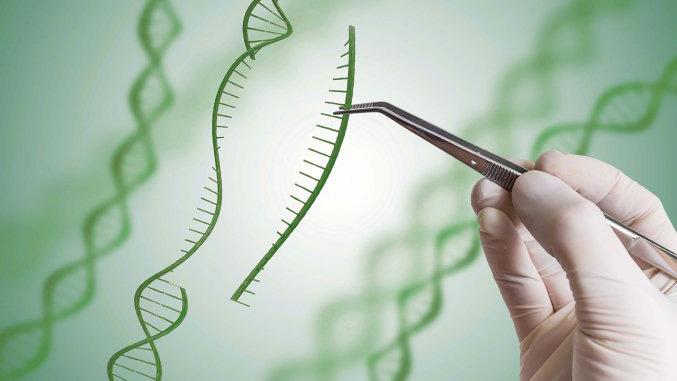
Syngenta Group, one of the world’s largest agricultural technology companies, will provide rights to selected genome-editing and breeding technologies for academic research globally, as part of its commitment to foster innovation and drive sustainability in agriculture. These rights are accessible through its innovation collaboration platform Shoots by Syngenta.
The rights to certain intellectual property are related to optimized CRISPR-Cas12a as well as to
gene-editing enabled breeding tools. Through CRISPR geneediting, it is possible to deliver an improved plant that does not include DNA from a different species – more quickly and efficiently than otherwise possible in nature or through conventional breeding methods.
“The power of CRISPR technology has incredible potential to enable crop innovation to deliver value to farmers,” says Gusui Wu, Head of Global Seeds Research at Syngenta.
“The increased use of CRISPR in agriculture can transform the way we approach plant breeding, accelerating the discovery and deployment of innovations that provide growers more productive and resilient crops. We are inviting
universities and academic institutions from around the world to help us drive innovation to improve the sustainability of agriculture.”
As a leader in this wave of technological innovation, Syngenta scientists have been continuously innovating to improve CRISPR-Cas genome editing technologies.
Syngenta’s scientists have engineered CRISPR Cas12a to increase both its efficiency as well as utility, significantly optimizing it as a tool for crop improvement.
Syngenta has long been open to sharing technology with public and private entities, enabling straightforward, quick, and easy access to its proprietary technologies for academic and nonprofit research use. One example is Syngenta’s vegetable licensing platform, which allows breeding companies and academic institutes to access and breed with Syngenta germplasm.
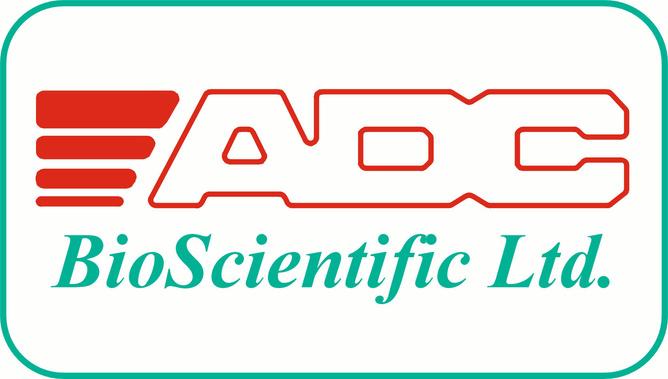

The world’s first automated photosynthesis infra-red gas analyzer.
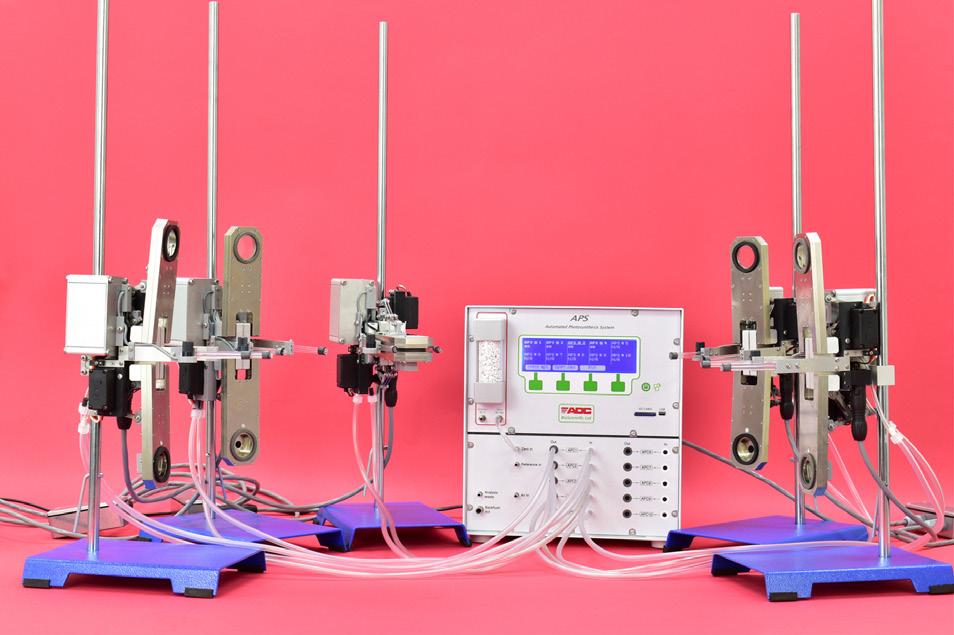
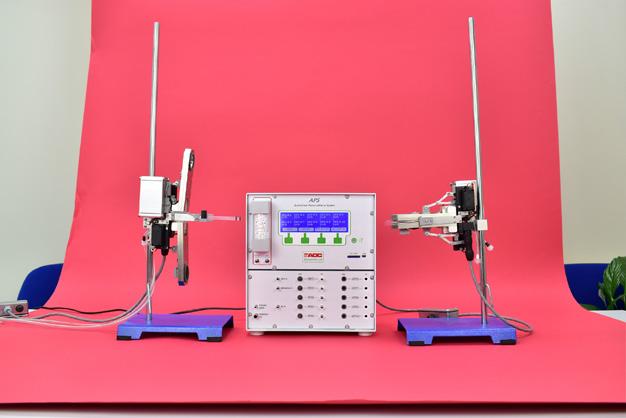

Enhanced climate control of carbon dioxide (3,000 ppm), water , temperature and PAR to the leaf chamber
Programmable RGB or White LED unit
GPS Data Recorded
Colour graphing with up to 4 legends

Investigate variation in photosynthetic performance throughout the day.
Advantages of the APS
Chambers automatically close onto the leaves to measure
Carbon dioxide uptake and transpiration readings and then open to expose them to ambient conditions
The console controls up to 10 leaf chambers to take multiple readings from replicated plants at pre-selected intervals while you get on with other aspects of your research
The unlimited length of gas tubing allows spacing of chambers in a growth room or greenhouse
Chlorophyll content meters
Interchangeable chambers (9) for exploring gas exchange in different leaf types, stems, fruit and soil
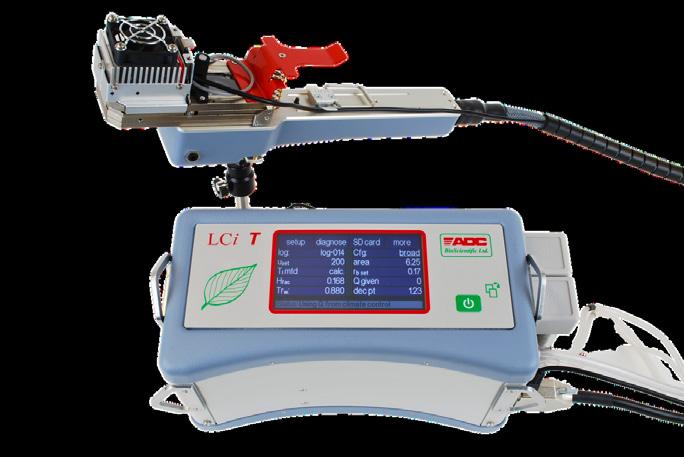
Programmable RGB or White LED light unit
Measures carbon dioxide uptake (2,000 ppm) and evapotranspiration at ambient conditions
Interchangeable chambers (9) for exploring gas exchange different leaf types, stems, fruit and soil
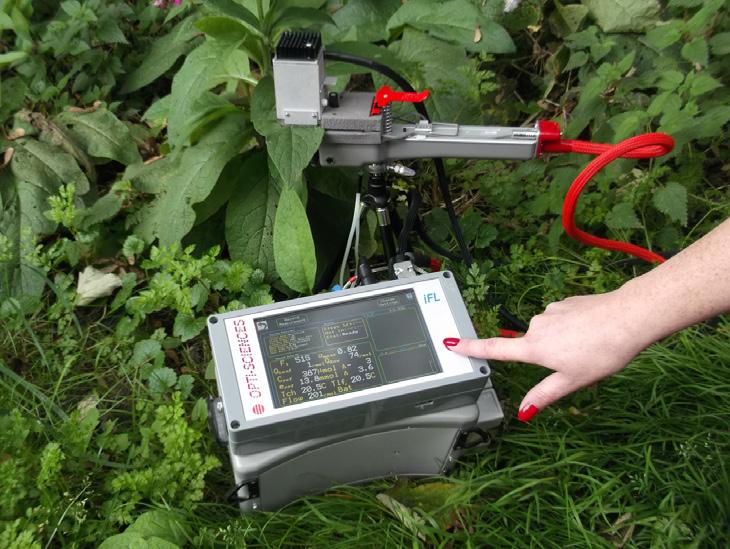
CCM300, CCM-200plus, MPM-100
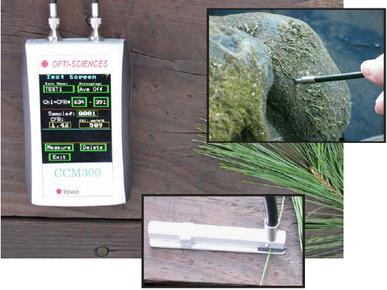

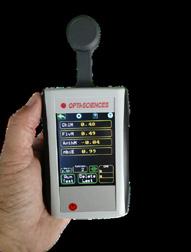
Non-destructive CCI, SPAD or mg/sqm readers.
Data averaging options. GPS included in all models.
Chlorophyll fluorescence meters
Basic and advanced devices to study plant stress taking light-adapted Y (II) and dark adapted FV/FM measurements in most environmental conditions.
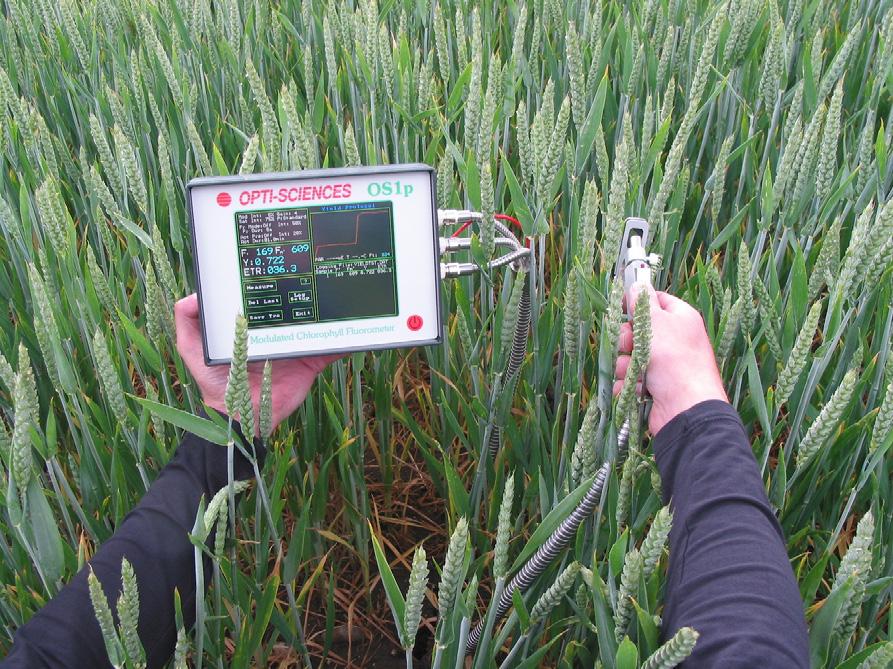
OS5p+, OS30p+, Plant Stress Kit
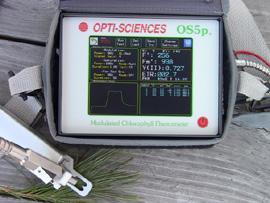

Powerful chlorophyll fluorometer combined with an advanced, climate- controlled photosynthesis system
Set up automated chlorophyll fluorescence and gas exchange experiments.
Automated modulated light adjustment
Rapid light curves
Fluorescence stress tests, carbon dioxide compensation point, mesophyll conductance and many other parameters.
Soil carbon dioxide and water flux instrumentation for the lab and field EGA61
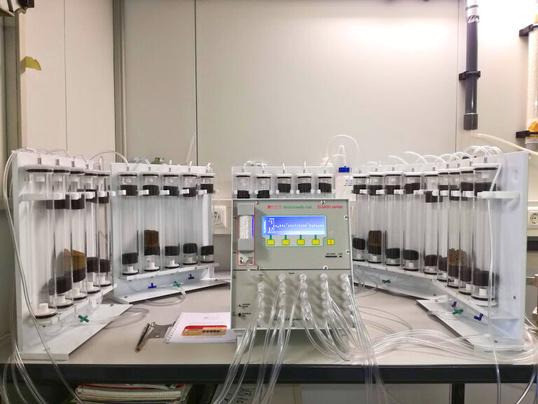
A compact carbon dioxide IRGA and water analyser
Gas multiplexer and data logger
Sequential analysis of up to 24 soil samples

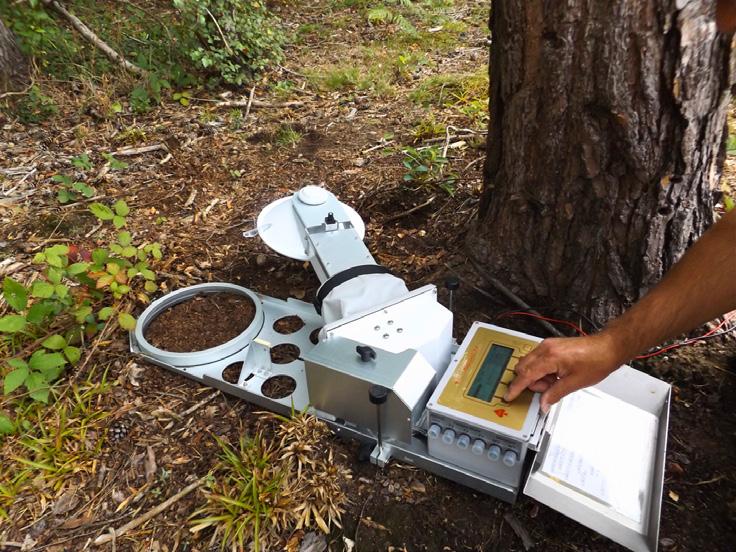
Portable soil gas exchange analyser.
Soil chamber for ‘spot measurements’ of Net Carbon Exchange Rate.
Automated soil carbon dioxide exchange system
Field analyser and data logger Used in long-term, unattended monitoring of soil carbon dioxide flux in the field
Open or Closed stations with autozero
Up to 30 ACE stations can be networked and run by the ACE Master
iyris (formerly RedSea), the sustainable AgriClimate Tech business whose pioneering technology advances commercial farming in hot climates globally, announces an exclusive distribution agreement with Sherwood Middle East (“Sherwood”) - a leading agricultural supplies distributor and part of Silal - for its SecondSky greenhouse covers in the UAE.
The agreement expands Sherwood’s product range to include agricultural coverings for the farming community and appoints Sherwood the exclusive distributor of SecondSky in the UAE.
The agreement will accelerate the sales and marketing of iyris’
SecondSky agricultural covers, stocking the product in Sherwood’s branches in the UAE and making it readily available to its impressive customer’s network.
SecondSky greenhouse covers block near infrared heat radiation reducing energy consumption by over 40%, water use by 30%, and increase profitability by 28%transforming farming operations by improving yield and produce quality and profit margins, empowering sustainable farming in this hot climate.
Simon Stockil, Growth Director, EMEA, at iyris, commented: “We are excited to announce our exclusive distribution agreement with Sherwood, as we continue to ensure SecondSky greenhouse
covers are readily available to meet the growing demand in the UAE market. In Sherwood, we have identified a trusted partner with an established distribution network and client base. We are now better placed to capitalize on the significant growth opportunity in the region. The agreement is a major step in advancing commercial farming in the region in a more sustainable and lucrative manner.
“As a pure-play technology company focusing on the commercialization and development of AgriClimate technology solutions, the benefits of SecondSky have already been established in the GCC. Partnering with Sherwood, a subsidiary of Silal, is testament to this.”
India’s largest fertilizer company, Deepak Fertilisers and Petrochemicals Corporation, has successfully reduced their time to collate, verify, and analyze agronomic data by 70%, from six months to under one month using the Agmatix platform. The Agmatix field trial software and data analysis system has helped Deepak detect and prevent errors in their product development trials, resulting in highquality efficacy data for over 1,500 annual trials conducted through the platform.
Previously, agronomists manually
entered multiple parameters per crop trial and across 25 sites each, using pen-and-paper field notebooks. This time-consuming method posed significant risks of data loss and entry errors. Agmatix’s data collector for agronomic trials has significantly reduced inaccuracies through instantaneous mobile data collection. The digital notebook allows the upload of images, notes, and videos alongside collection location data and timestamps, securely storing all data in the cloud.
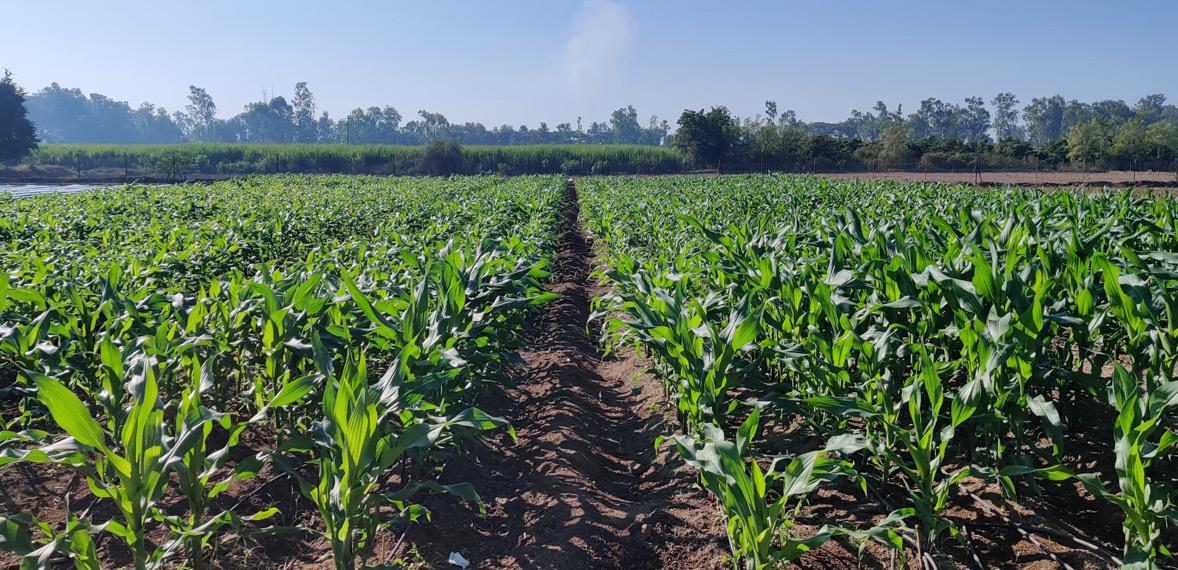
“Before integrating Agmatix’s solution, I spent months manually collating agronomists' data, delaying business presentations. Now, the platform handles it instantly, allowing me to focus on other tasks,” comments Senior Manager R&D Project and
Data Lead at Deepak. “I tried other platforms, but they weren’t suitable for our needs. Agmatix Trial Management fits seamlessly into our existing IT systems, and the team worked closely with me to create bespoke modifications to perfectly fit our requirements.”
“Agricultural input companies are facing increasing pressure to maximize efficiency and output with limited resources. Digitization is key to cultivating a competitive edge, enabling faster transitions from product testing and development to registration and sales” said Ron Baruchi, CEO of Agmatix. “By deploying our technology, businesses like Deepak are advancing sustainable agriculture and enabling higher yields by continually developing their products in smart and efficient ways, contributing to global food security.”
AGWA (AgriFood Growth & Water Abundance), Abu Dhabi’s new food and water cluster, is joining forces with five of the UAE capital’s leading universities and technology enablers to bolster innovation, talent development and advanced research, with the aim of tackling food shortages and water security globally.
Led by the Abu Dhabi Department of Economic Development (ADDED) and Abu Dhabi Investment Office (ADIO), AGWA is set to become a global hub for novel food and ingredients, as well as for technologies that increase access to water resources and enable their efficient utilisation. ADIO has brought together the expertise and resources of the Advanced

Technology Research Council (ATRC), the Abu Dhabi Investment Authority Lab (ADIA Lab), Khalifa University, the United Arab Emirates University (UAEU), and Hub71 to collaborate on fostering innovation and sustainable solutions within the food and water sectors.
The research centres will play a defining role in uncovering breakthroughs and advancements related to the future of food and water. This will drive progress in areas like the development of alternative proteins, functional ingredients, algae, farming, and reverse osmosis membranes.
The innovative AGWA cluster has been meticulously designed to support local suppliers and exporters alike, serving as a
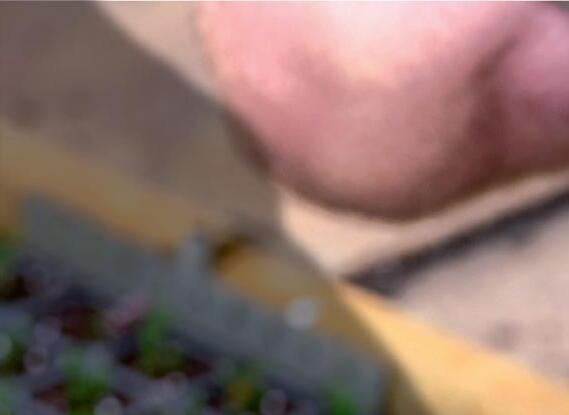
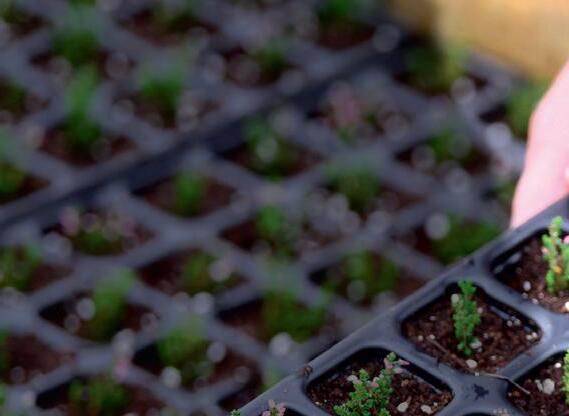

platform for the maximisation of commercial opportunities. The cluster aims to meet increasing global demand, alleviate pressures on agricultural systems, address shifting dietary patterns, capitalise on technological advancements, and support global food security, ensuring a reliable and resilient supply chain for food and water.
The five Abu Dhabi research-led organisations will work closely with other AGWA companies to support the development of cutting-edge solutions and technologies, nurture talent and expertise essential for driving innovation and growth, and provide insights into emerging trends that affect market demands and challenges related to food and water.
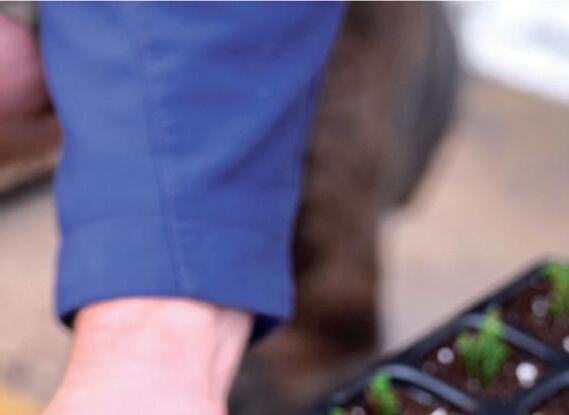
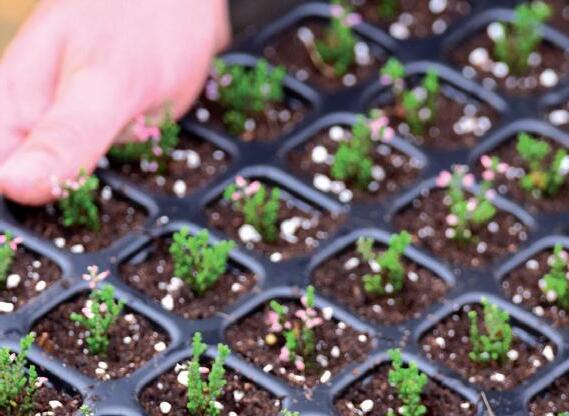


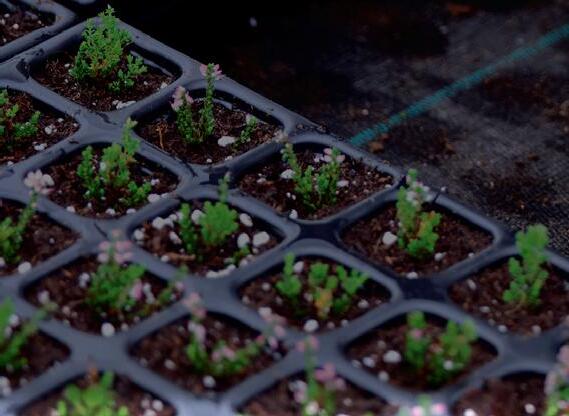
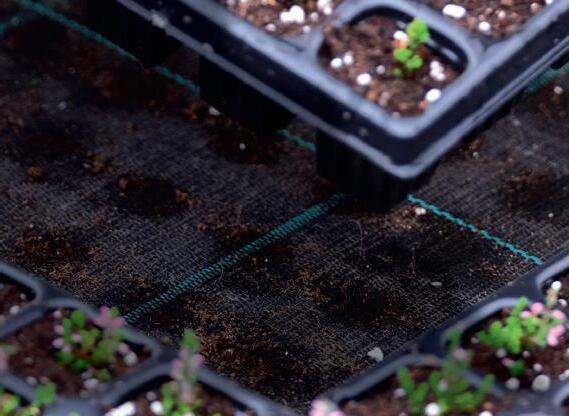
The International Center for Biosaline Agriculture (ICBA) is looking to expand collaborations with leading Brazilian agri-tech institutions to bolster national and international efforts aimed at increasing food security and alleviating hunger worldwide.
Joining more than 500 highlevel delegates, including senior government and business representatives, from different countries, Dr. Tarifa Alzaabi, Director General of ICBA, participated in the International Conference on Food Security and Fighting Hunger “Josué de Castro” in São Paulo, Brazil, at the invitation of Mr. José Aldo Rebelo Figueiredo, Municipal
Secretary of International Affairs of São Paulo.
ICBA’s participation in the conference is aligned with its endeavor to strengthen cooperation with leading Brazilian agri-tech institutions to support local and global efforts to increase food security and reduce hunger. Dr. Tarifa Alzaabi held discussions and meetings with different partners with a focus on these goals, as well as ICBA’s work in saline and arid regions to address agricultural challenges through research and innovation.
Dr. Tarifa Alzaabi participated as a speaker in a special session on science and biotechnology and spoke about the challenges to food security
in the Arab region, including water scarcity, drought and salinization, and severe effects of climate change that the region is experiencing. She also presented examples of the innovative solutions that the center uses to mitigate and adapt to these challenges, including climate-resilient crops, water-saving technologies, solutions for reject brine management, soil amendments, and plant pest controls. She also emphasized the importance of collaboration between organizations and countries, pointing out ICBA’s partnerships with Brazilian agritech institutions such as the Brazilian Agricultural Research Corporation (Embrapa).
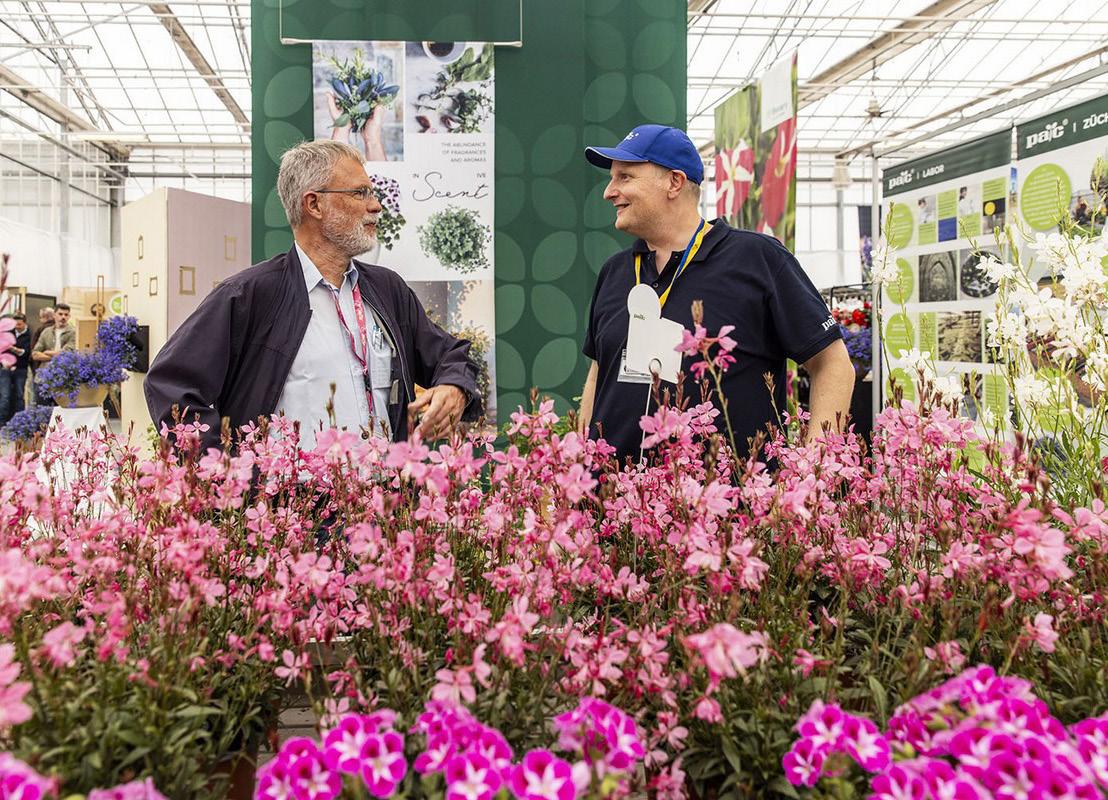
After 4 days of plants, people and many thousands of conversations, FlowerTrials® closed the doors with just over 5300 visitors, 5% above the number of visitors in 2023. From young plant producers and growers over wholesalers and retailers to green marketing experts and suppliers, professionals working with pot and bedding plants from over 80 countries gathered to seek inspiration
for future assortments and discover the latest trends.
While the number of visitors is always interesting, FlowerTrials® companies agree that it is the quality of the visitors that counts.
Marjolein KuyucuLodder, FlowerTrials® Chairman: "Visitor numbers remain stable and that is of course excellent news, but it is the quality of the visitors that each of the 59 companies taking part finds more important. This year our exhibitors were delighted with the interest from the visitors and the value of the conversations. Meeting customers from all over the world who are genuinely interested in the products on show in a relaxed atmosphere is the reason
FlowerTrials® continues to be the main event in the pot and bedding plant calendar."
The two new participants, Kolster B.V. and Schreurs Holland, were delighted with their first-time participation.
Wouter den Hollander, Sales Manager at Kolster B.V.: "Last year our location was just a host for the event. We saw the potential of showing our own assortment and this year joined as a member. Together with our FlowerTrials® partners HoKo breeding and Walter Blom we have been overwhelmed with the quantity and quality of the visitors this year. We will certainly be back in 2025."
FlowerTrials® members are already looking forward to opening their doors again next year in week 24, to meet with all those interested in ornamental horticulture. Mark 10th to 13th June 2025 in your diary now!
Two pioneers in global sustainability certification, FoodChain ID and ReSeed, announce the launch of a new industry-leading ReSeed Soil Carbon Methodology for carbon market initiatives. The Soil Carbon Methodology rewards farmers not only for maintaining existing soil organic carbon built through sustainable farming practices, but also for the removal and storage of additional carbon dioxide emissions by soils. The Soil Carbon Methodology is the first program on the market to offer these two key benefits, while also making voluntary carbon markets accessible for vulnerable and small farmers to scale agriculture climate initiatives worldwide.
Following their partnership announcement in November 2023, FoodChain ID and ReSeed have sought to increase transparency in the measurement and verification of regenerative agriculture practices for the agri-food supply chain. With a carbon credit verification standard at

the center of the collaboration, ReSeed and FoodChain ID incentivize, measure and verify the progress of carbon sequestration and storage through regenerative agriculture practices.
The new ReSeed Soil Carbon Methodology embraces the latest scientific innovations for soil organic carbon stock measurement at scale. According to Vasco van Roosmalen, CEO at ReSeed, “The application of the Methodology will be made possible through ReSeed’s Digital Climate Impact Platform and the results will be validated and verified by FoodChain ID to ensure scientific rigor, consistency and transparency in project quantification methods, while also accommodating implementation across diverse geographies and farm operations.” The Methodology is benchmarked against legacy carbon methodologies like VERRA’s VM0042. Soil carbon projects will undergo annual independent verification by FoodChain ID.
As part of its international growth strategy, seed specialist KWS opened its new research and breeding station for vegetables in Uberlândia, located in the western part of the Minas Gerais state in Brazil. The team will focus on breeding for tomato, melon and watermelon. The location has been inaugurated with an official ceremony.
The approximately 100 visitors were welcomed by Ailton Ribeiro, Head of Breeding Latin America at KWS Vegetables, who officially opened the inauguration with a presentation, toast and cutting of the ribbon. Afterwards, everyone was able to get an overview of the new breeding station and several varieties in the field on a tour.
The 13-hectare sized location includes
warehouses, offices, 3,800 square meters of greenhouses and 7 hectare of open field area. The team of around 60 people consists of research experts, breeders and a farm team. For the next couple of years, it is planned to add some greenhouse area for phytopathology activities as well.
“This station will be the main hub for our activities for the Brazilian and South American vegetables market where we expect to develop new varieties and hybrids that are well adapted to tropical and subtropical conditions, attending an increasing demand for vegetables with better quality, higher yielding and resistance to the main pests and diseases”, says Ailton Ribeiro, Head of Breeding Latin America at KWS Vegetables.

As part of its strategic open innovation approach global life science company Bayer has advanced two initiatives with external partners to bring forward genome editing in vegetables. Bayer and South-Korean biotech company G+FLAS have entered into an agreement to collaborate on developing genome-edited tomato varieties that are nutritionally enhanced with vitamin D3.
Vitamin D deficiency is a widespread issue globally, particularly in countries where winter sunlight is limited. It affects an estimated billion people worldwide and can
lead to a range of health issues including rickets.
“Bayer is committed to achieving ‘Health for All, Hunger for None’. As we work toward this mission, we are proud to address a widespread nutrition problem and to support a healthy diet through cutting-edge technology. The collaboration leverages G+FLAS’ genome editing technology and Bayer’s proprietary tomato germplasm,” said JD Rossouw, Head of Vegetables Research & Development at Bayer during the World Seed Congress in Rotterdam where the industry gatherd from May 27-29.
Part of the agreement is also the ambition to develop seeds for a broader variety of tomato products using genome editing. The technique allows to make changes to a plant’s genome that could also occur in nature or through conventional breeding, but in a more precise and faster way.
“Modern breeding technologies, such as genome editing, can provide health benefits and resilience to a changing climate. It is an important new technology in a breeder’s toolbox, and we anticipate it being a part of our pipeline moving forward,” said JD Rossouw.
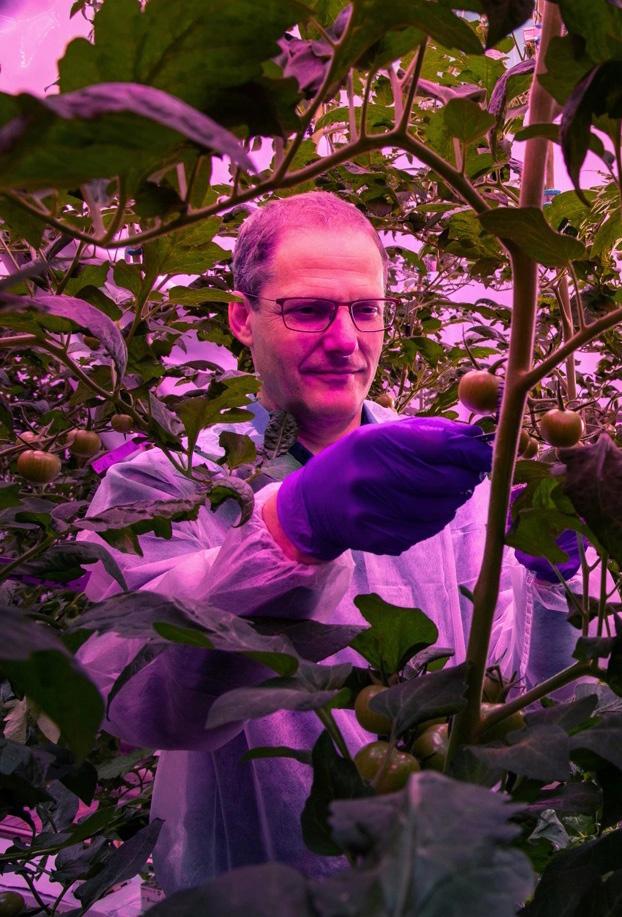
The world's first CO2-negative greenhouse is on the market. This technical innovation produces large quantities of fresh vegetables, with less fossil energy consumption and even lower costs per kilo of fresh product than regular greenhouses.
Westland horticultural innovator KUBO has launched the groundbreaking greenhouse to horticulturists, investors and governments during the GreenTech RAI from June 11 to 13 in Amsterdam. This new development shows that the greenhouse horticulture sector is taking responsibility; for both food security and CO2 reduction and is bound to attract great interest in international markets With this development, the greenhouse horticulture sector is showing that it is taking responsibility; for both food security and also CO2 reduction.
The international KUBO Group, a family business since 1946, has been innovating cultivation methods and its range of greenhouses for decades. This breakthrough innovation is necessary for achieving more sustainable global food production and comes at a time when the world can make excellent use of
CO2-negative vegetable cultivation.
“We are pragmatists and are not a company that goes through elongated scientific processes. When our Blue Lab research team makes a discovery, it is tested several times in separate greenhouses and technically developed into an ultimate market product. For validation we work with partners such as the Climate Neutral Group and SBTi, but when it gets the green light it has to go to market,” says KUBO's CEO Wouter Kuiper. KUBO is already successfully implementing the new greenhouses with some regular customers, but is now looking to accelerate and expand in order to make a truly sustainable impact. That is why investment companies and governments in Europe, the Middle East, North America and Asia are also being proactively updated on KUBO’s newest, sustainable, local food production opportunities.
Under the guidance and support of His Highness Sheikh Mansour bin Zayed Al Nahyan, Vice President of the UAE, Deputy Prime Minister, Chairman of the Presidential Court and Chairman of the Board of Directors of the Abu Dhabi Agriculture and Food Safety Authority (ADAFSA), the authority has launched the Abu Dhabi Agriculture and Food Security Data Platform.
The platform is a strategic tool to support decision-making on food security and agriculture issues in Abu Dhabi. The advanced electronic gateway provides accurate and comprehensive information on all aspects of the agriculture and food sector in Abu Dhabi, from agricultural production to distribution and
consumption.
The platform enables the analysis of up-to-date data and the extraction of reports that help policymakers make decisions that contribute to improving the efficiency and effectiveness of food security policies and programmes, and to developing a sustainable, flexible and integrated food system that meets the needs of the emirate and enhances the rapid response to mitigate any threats or risks to food security and biosecurity in Abu Dhabi and the country.
His Excellency Saeed Al Bahri Salem Al Ameri, Director General of ADAFSA, said that the launch of the Abu Dhabi Agriculture and Food Security Data Platform is an important step towards promoting innovation in the field of food
security. By providing an advanced digital platform that provides access to reliable data, it helps support policymakers and researchers in developing innovative solutions that enhance the efficiency and effectiveness of the agriculture and food sector in the emirate.
“We greatly appreciate the full support of His Highness Sheikh Mansour bin Zayed Al Nahyan for this important initiative, as this support embodies the insightful vision of a wise leadership that recognises the importance of food security in achieving stability and prosperity, within the framework of the Abu Dhabi government's commitment to utilise all resources and capabilities to ensure the provision of safe and sustainable food for all residents of the emirate.”

Ambiorix from Roam Technology is not just an iron supplement, it's a complete solution that also provides phosphorus and potassium in one formulation. This tripleaction approach supports robust plant growth and optimal health.
Ambiorix is a revolutionary iron fertiliser that leaves no residue. Traditionally, iron chelates have been used to prevent iron precipitation in solutions and ensure iron transport to the plant. Chelates are organic molecules that
form complexes with iron, but are useless to the plant. Unlike chelates, Ambiorix’s inorganic polyphosphates are completely absorbed by plants, breaking down fully in the process. In the acidic environment of the plant roots, the polyphosphates in Ambiorix break down into orthophosphates, making both phosphorus and iron 100% readily available for plant uptake. This is a significant improvement compared to chelates, which end up recirculating uselessly in the system.
Ambiorix also has a distinct advantage over chelates when it comes to filtration or disinfection systems. Organic molecules, like chelates, tend to get stuck in carbon filters, leading to loss of iron and clogging of filters. In contrast, the inorganic and fully oxidised nature of polyphosphates allows them to pass through filters more efficiently and not to be broken down by oxidants, ensuring that nutrients are delivered throughout the entire system until they’re fully absorbed.
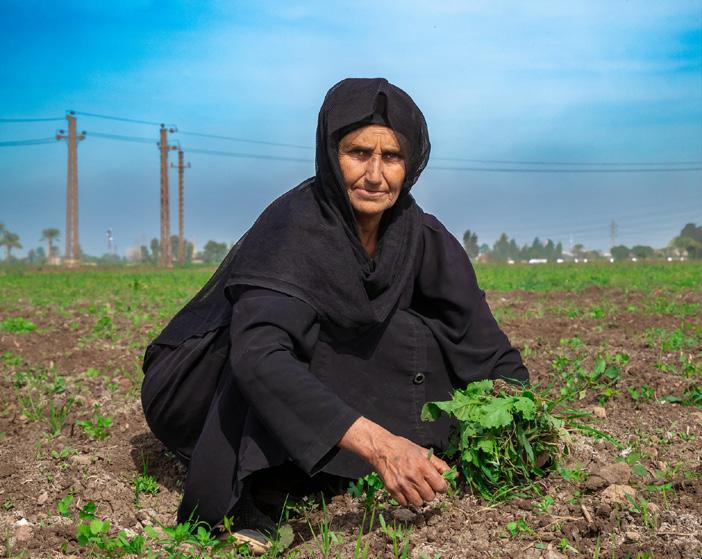
The recent Food Policy Monitoring Bulletin highlights that inflation continues to ease in most regional countries. Still, it is persistent in some economies, such as Egypt, Lebanon, the Sudan and Yemen. In North Africa wheat yields are projected to be well below-average and, thus, increasing import requirements, while in the Near East, winter cereal production is expected to be above-average.
The region has five hunger hotspots: Palestine, the Sudan, the Syrian Arab Republic, Lebanon and Yemen. Palestine and the Sudan are at the highest concern level. Gaza’s entire population is experiencing high
levels of food insecurity at Phase 3 (Crisis) or higher.
Many non-oil exporting countries in the region are struggling with high debt levels. Egypt has raised the price of state-subsidized bread for the first time in more than 30 years. Countries are expanding domestic wheat (Egypt and Mauritania) and fertilizer (Iraq and Morocco) production, while Morocco has increased grain subsidies to boost grain imports.
Trade-restricting measures included extending its export ban on sugar, Mauritania increasing customs tariffs on Moroccan fruits and vegetables, and Sudan increasing customs tariffs across the board. Trade-facilitating measures included Egypt’s conclusion of the export ban on onions and Iraq’s reduced customs tariffs on live animals.
Countries have adopted the following trade-facilitating measures: Egypt’s conclusion of the export ban on onions and Iraq’s reduced customs tariffs on live animals. In addition, due to the Red Sea crisis, countries are
diversifying their exports towards new or increasing markets, and the United Arab Emirates is expanding its trade net further with new free trade agreements.
The region has continued to pursue climate change adaptation and mitigation measures: Morocco is expanding vegetable production in mountain areas and developing drought-resistant plants, and Saudi Arabia has developed new banana varieties tailored to its climate. Furthermore, countries are implementing new, sustainable agricultural practices, such as sustainable and intelligent farming (Bahrain, Qatar), development of the carbon credit industry (Iraq), issuing green bonds (Kuwait), reforestation (Libya, Saudi Arabia), and implementing vertical hydroponic farming (United Arab Emirates) and leveraging information and communication technologies (ICT) and artificial intelligence (AI) to advance sustainable farming practices.

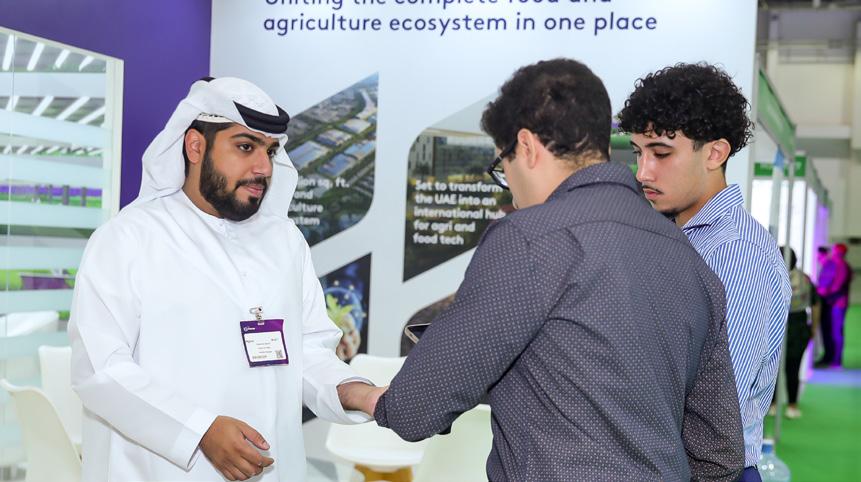
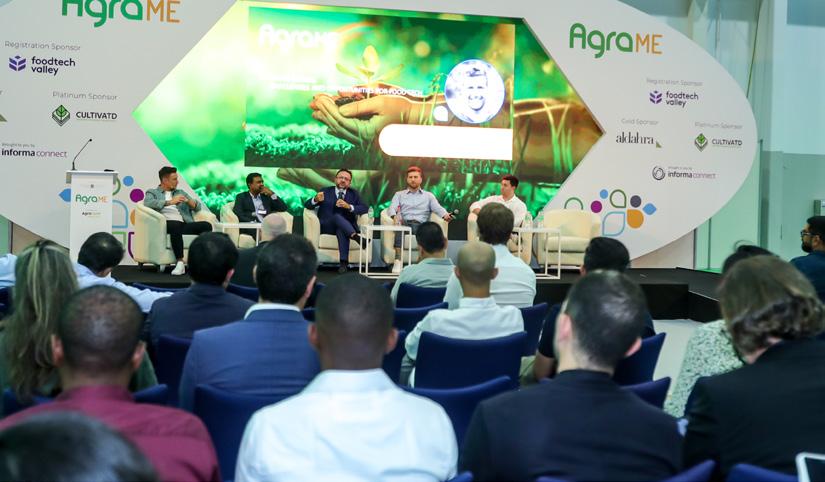

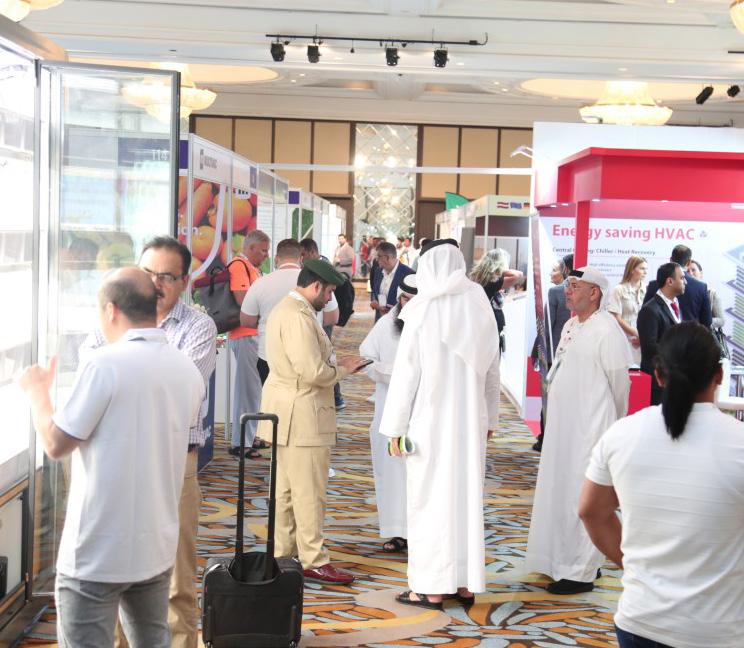
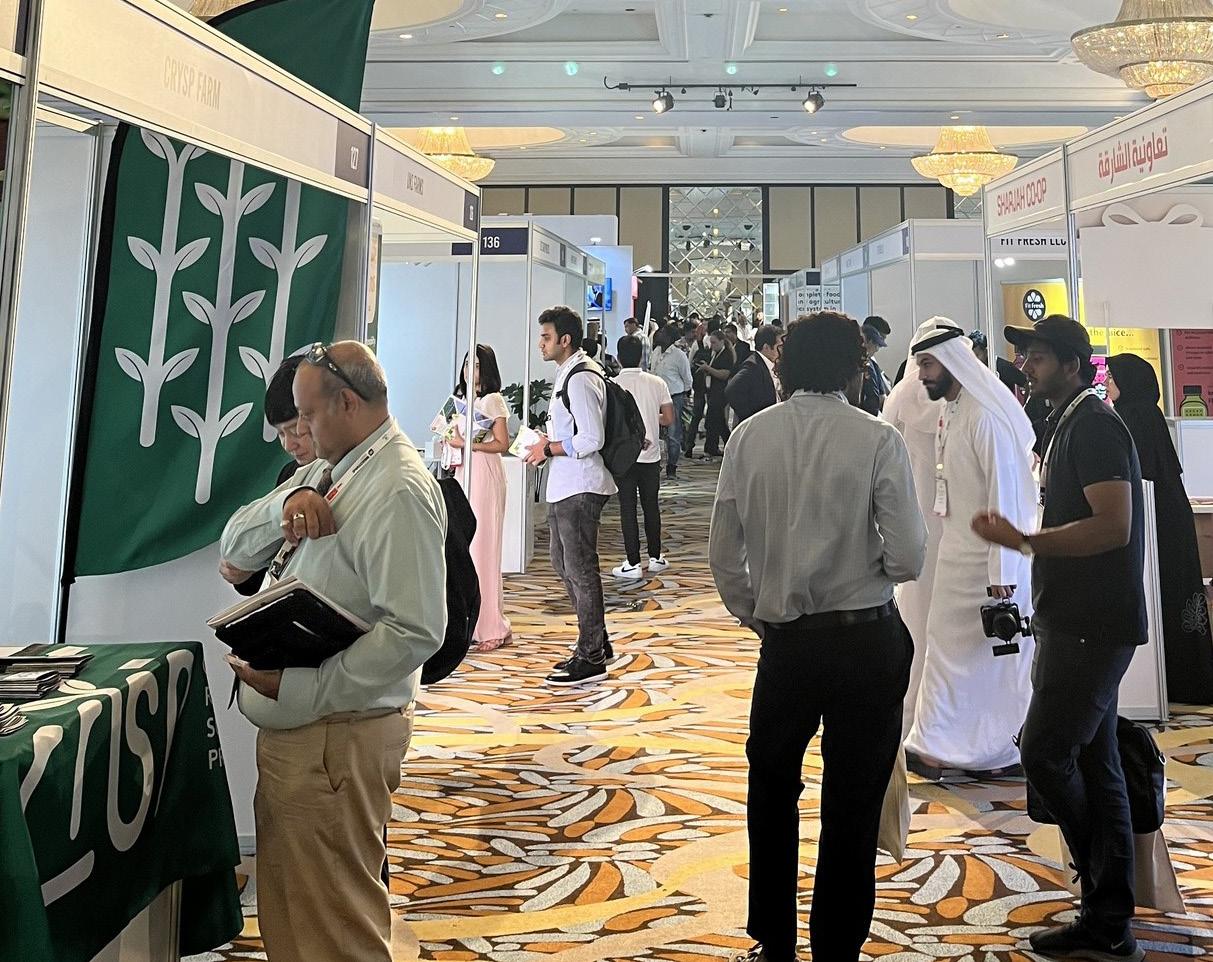
The 5th Global Vertical Farming Show which is scheduled to take place on 10th & 11th September 2024 at Le Méridien Dubai Hotel & Conference Centre, is already the talk of the town for top vertical farming enthusiasts from the UAE and even beyond.
With its past 4 editions being record-breaking - all eyes on UAE for hosting the Middle East’s Largest and Only Exclusive Vertical
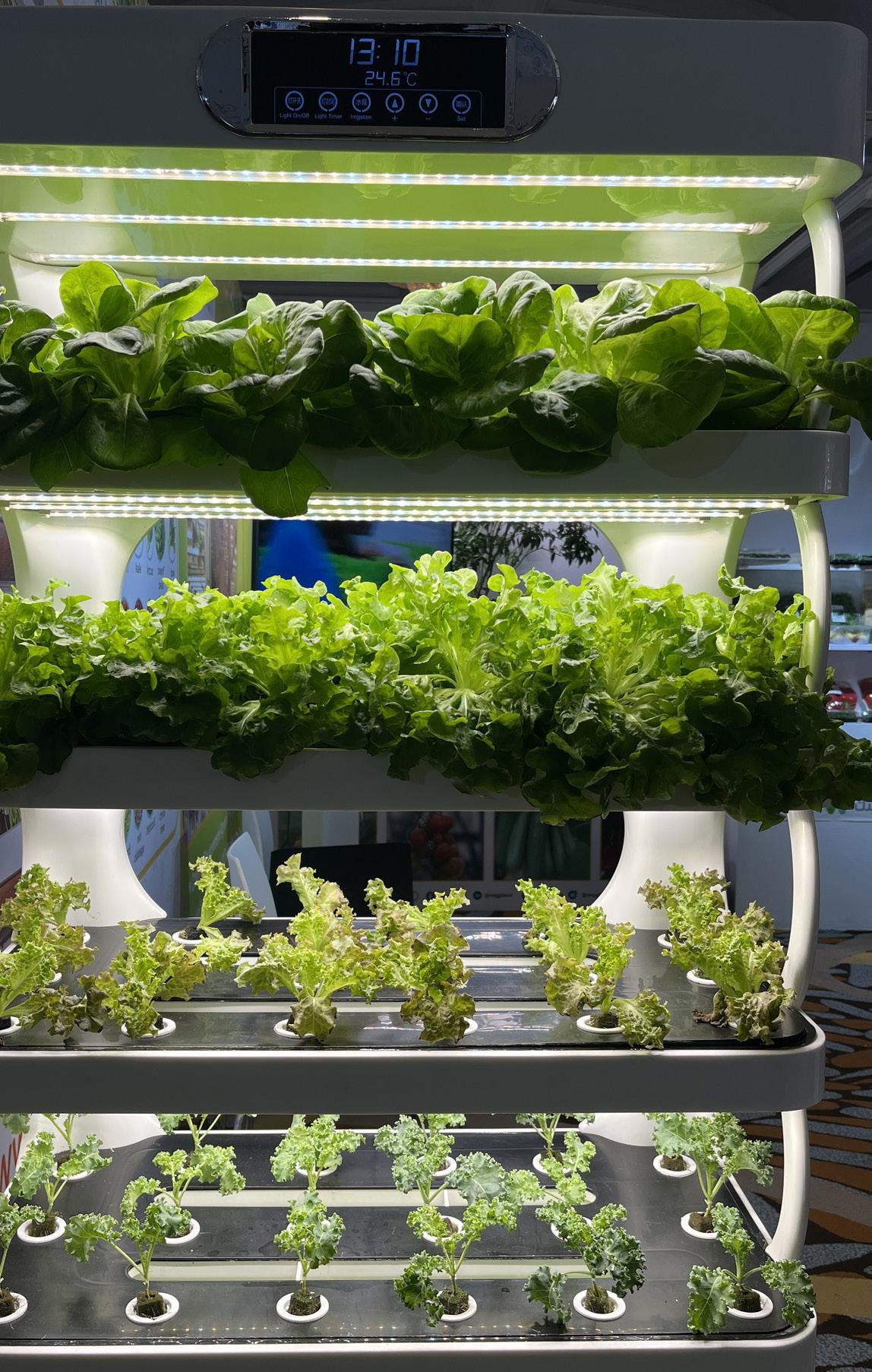
Farming Event.
Revealing the participation list so far, TAB group - the organizers seemed very excited. They say that “this is one of our most established events in UAE and we are looking forward to hosting this again - for the 3rd time in Dubai.”
“The show has top national and international vertical farming players including Vertical Future - as our Strategic Sponsor and other players like Bustanica, Enjazponic, Sormac B.V, JASA Packaging, B-farm, Green Automation, Beyond Green, Enkitek, Subitec, FUTR.AG, Hippotainer, ams OSRAM, NanoNord, LEDINPRO, Wieland Electric, Chemstock, Bry-Air, Total Grow Control, PerfoTec, Concert Bio, Responsive Drip Irrigation, Sharjah Research, Technology, and Innovation Park, ADAFSA, Sharjah Sustainable City, Pure Harvest Smart Farms, UNS Farms, Elite Agro Projects, Veggitech, Smart Acres, Themar Al Emarat, Al Aliyo Hydrofarms, Fresh On Table, Fit Fresh, ICARDA and a lot more!” TAB group added.
The reason why GVF has been creating a benchmark every year is because of its exclusivity. The show is
a premier platform for Vertical Farming in the Middle East, where it only focuses on companies that are looking to accelerate and evolve in the vertical farming business.
While other agriculture events in the region excel in their respective sectors like Agrochemicals, Agri Machinery and Food - giving Vertical Farming very little space and limelight, GVF is wholly dedicated to Vertical Farming.
Mohammad Talha Sarwar, Project Manager - GVF 2024 and AVP - TAB group upon asking why companies should participate at GVF said “Everything here is dedicated to Vertical Farming and CEA. Just like you go to the best Italian restaurant for pizza or the top Japanese place for sushi, GVF is where you go for the ultimate Vertical Farming experience in the Middle East.”
For participating at the expo, make sure you register ASAP and book a few of the premium location boothsbefore they are taken!
For more information, visit www.verticalfarmingshow.com
Gulfood Green, 24-26 September at Dubai World Trade Centre, will provide an indispensable global platform for the entire food ecosystem to exchange on technology, regulations, practices, solutions and changes in consumer food culture. The overarching goal is to achieve sustainability in all its dimensions: from farmers, to supply chains, food production, mindful consumption and Fourth Industrial Revolution technologies such as artificial intelligence, blockchain and smart agriculture.
It will fast-track the sharing of emerging, innovative concepts and products, and offer insights into alternative ways to produce, trade and consume food. This encompasses ethical sourcing, cleanlabel products, green packaging, plant-forward food production and consumption, and waste reduction across the supply chain.
Gulfood Green is a platform for startups and investors to connect, collaborate and delve into the latest innovations shaping the industry. FoodTech and AgriTech startups will have invaluable opportunities to explore, create and gain insights driving the future of food technology.
Features:
The inaugural Food for Future
Summit steps into the spotlight as a crucial event—this visionary gathering brings together 50+ of the world's leading food innovators, investors, changemakers, and policymakers to pave the way for a sustainable, secure, and equitable food future. Through fresh ideas, diverse expertise, and collaborative efforts, stakeholders will ignite innovative solutions to meet this challenge head-on. Positioned uniquely to foster unity and drive progress, the summit aims to accelerate global advancements in food systems. Join us for three days delving into sustainability, climate action, and groundbreaking technologies shaping tomorrow's food landscape.
Join Gulfood Green now for your chance to compete for cash prize funds and invaluable investor networking, mentorship, and learning at our exciting new pitch competition. The Green Shoots Startup Competition will pit the most exciting food and agtech startups head-to-head, as they pitch in front of a jury of world-leading VCs, corporates, and prominent industry experts, to be crowned 2024 champion.
Supported by the UAE Ministry
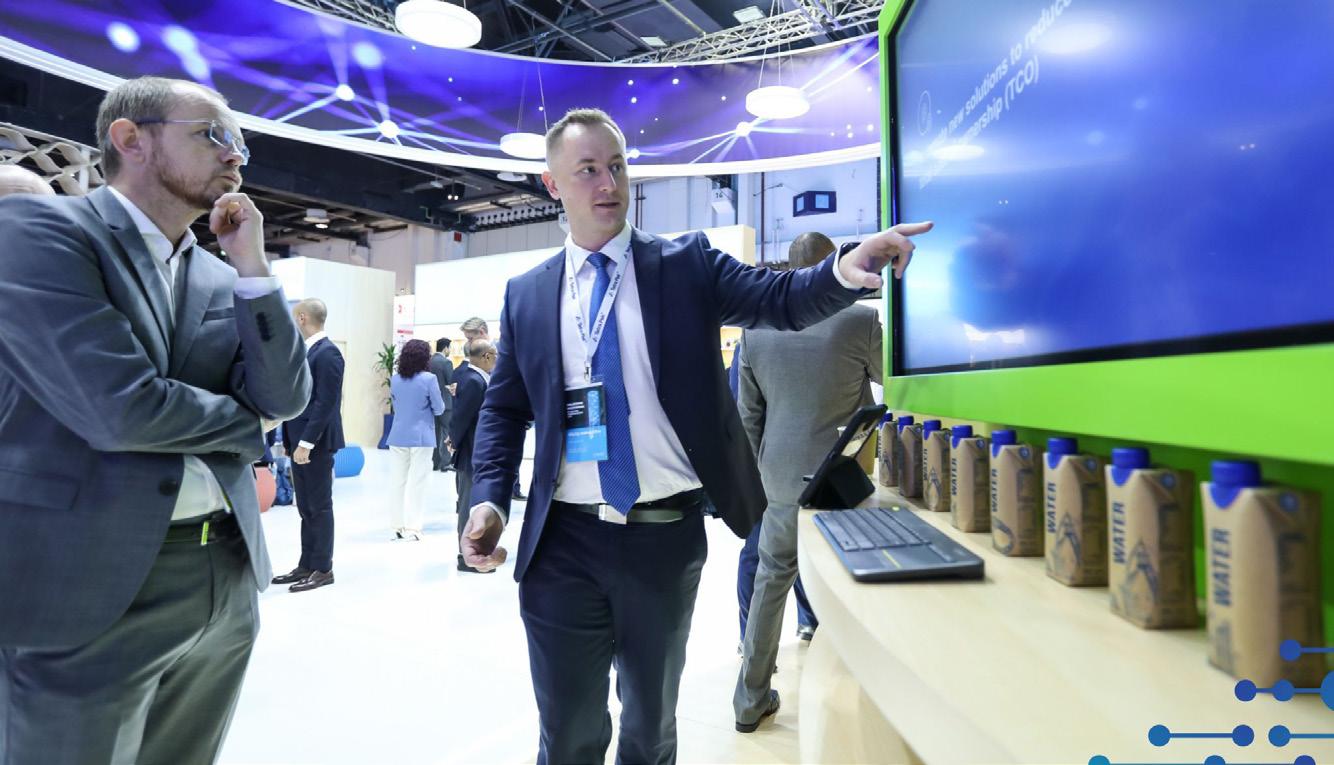
of Economy, The Green Shoots Startup Competition, is taking place across 3 action-packed days of panel sessions, workshops, and the pitch competition and will accelerate the growth of the most promising startups within the sector.
More features include:
INVESTOR LOUNGE - Providing a curated business-to-investors matchmaking programme set in a private section of the show, designed to connect qualified exhibitors and investors helping them build fresh and reliable relationships. This is an excellent opportunity to have valuable & efficient pre-scheduled meetings to enhance the show experience & help participants maximise their commercial opportunities.
EXHIBITION - Presenting the entire Fresh Produce value chain, from ready-to-eat fresh perishables through to innovations in production, logistics, storage, and recycling.
GULFOOD GREEN TERRA AWARDS - Celebrating excellence in sustainability and encouraging green best practices across the food & beverage value chain.



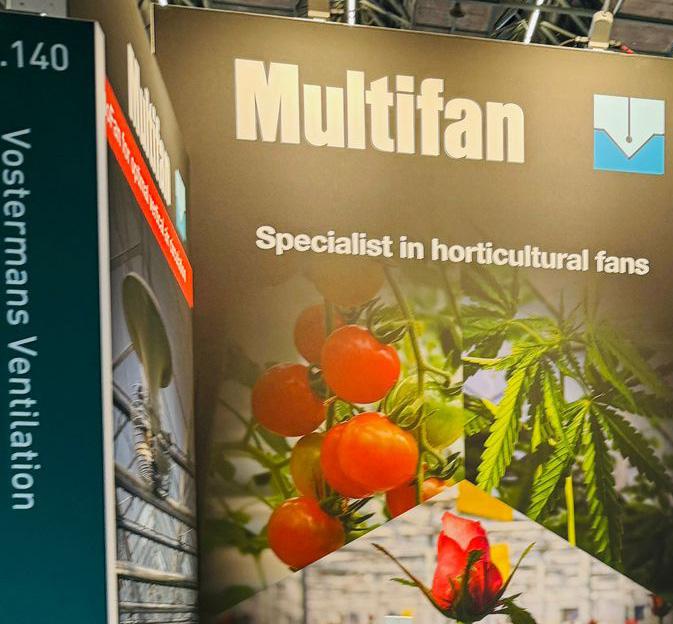
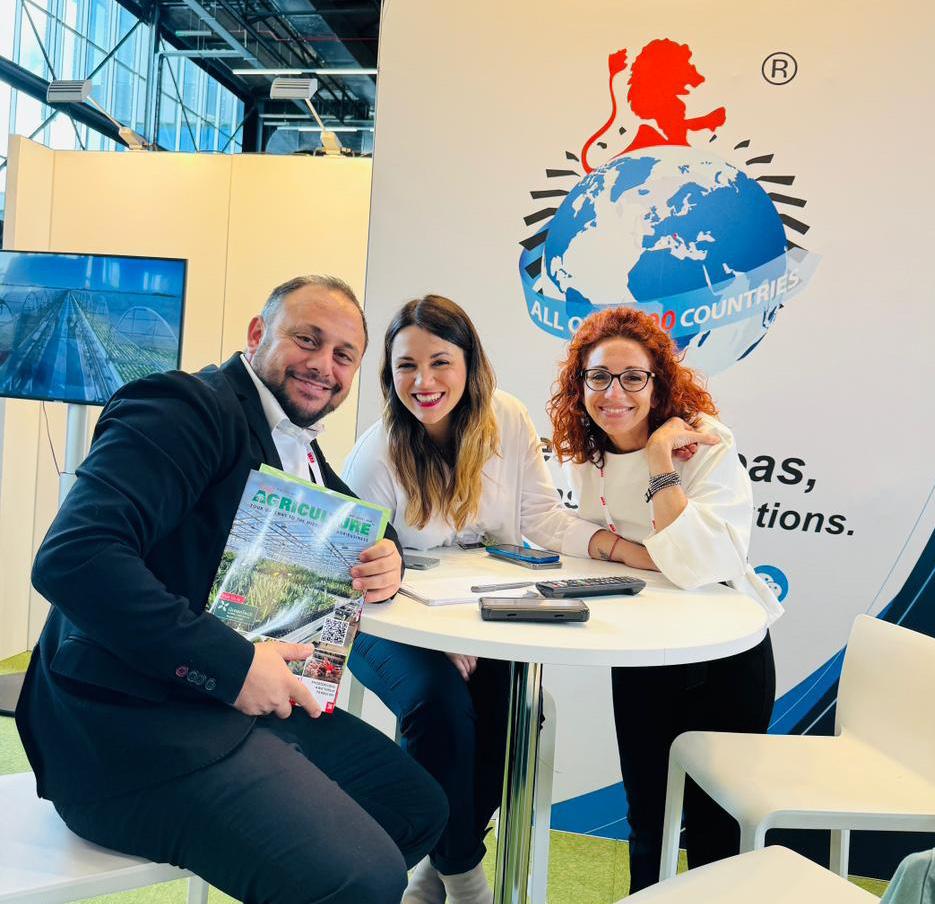
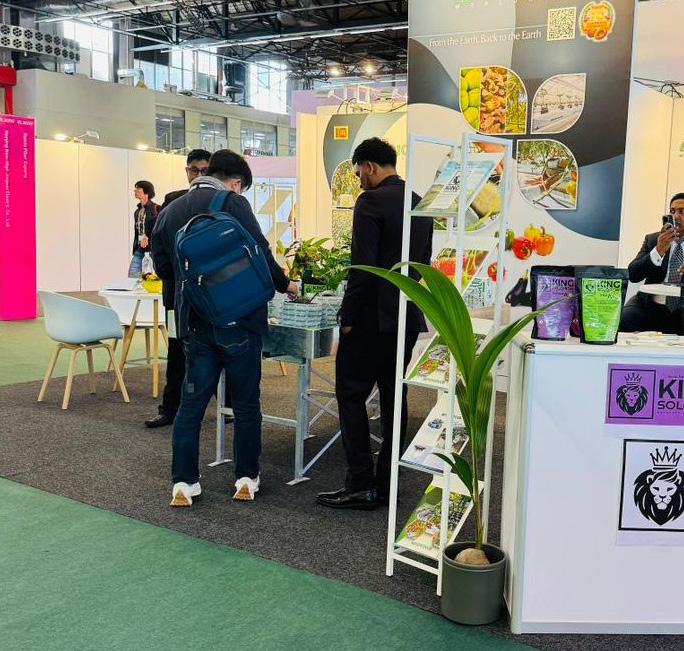
Globally, there is significant attention on food security, safety, and the role of technology in making horticulture more sustainable. GreenTech Amsterdam was the epicenter of the horticulture industry last week. Despite the challenges facing the industry, innovation continues to thrive, with numerous high-tech examples such as picking robots, automated sorting machines, and drones showcased on the show floor. The event saw a remarkable growth of 5% in visitor numbers compared to 2023, attracting over 12,200 attendees. GreenTech was held from 11 – 13 June at RAI Amsterdam.
A total of 119 countries attended
the trade show. The top 5 countries represented were the Netherlands, Germany, South Korea, United Kingdom and Canada.
Mariska Dreschler, Director Horticulture - GreenTech Global: “The horticulture industry is experiencing a mix of challenges and opportunities. The positive energy on the show floor was visible, with numerous new products launched. We received a record of 47 entries for the Innovation & Concept Awards. Striking was that over 45 country official delegations attended to witness the latest developments and gain insights into current trends. Key discussion topics included AI, data, labor solutions, LED technology, and water/energy efficiency. The booths


of our 510 exhibitors from 40 countries showcased a wealth of machinery, robots, drones, and more. As GreenTech we are very proud to be the worldwide platform part of the industry where everything comes together and new insights are born."
Positive reactions from visitors: Luis Valdez (COO, Hyfood, Mexico): “We really found the latest innovations at GreenTech Amsterdam which inspires us for the future and helps us with water solutions. GreenTech has a huge overview of what's going on in the horticulture industry.“
Oualid H Khelifi (Founder & Managing Director, Anzul, Algeria):

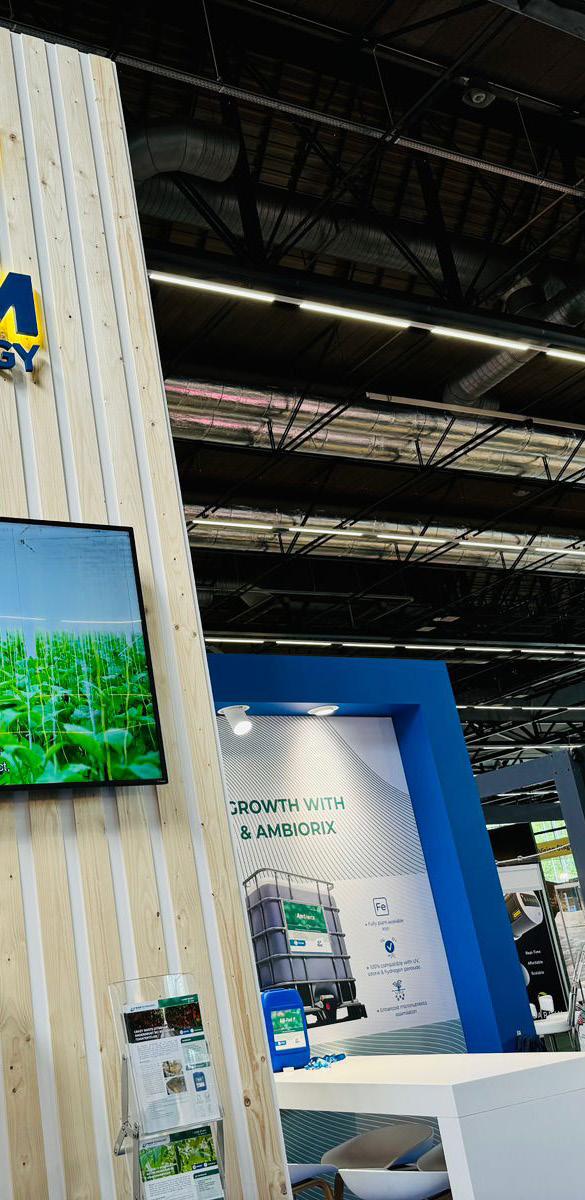
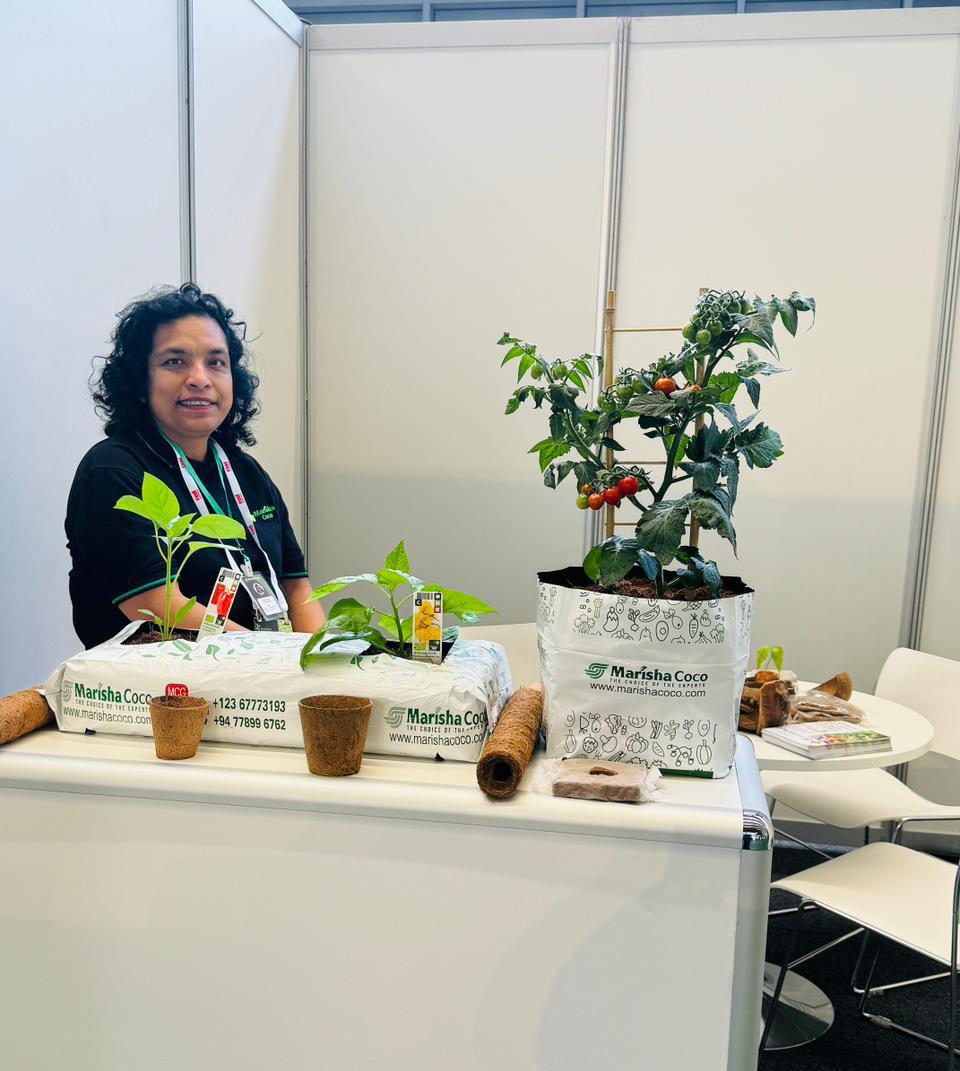
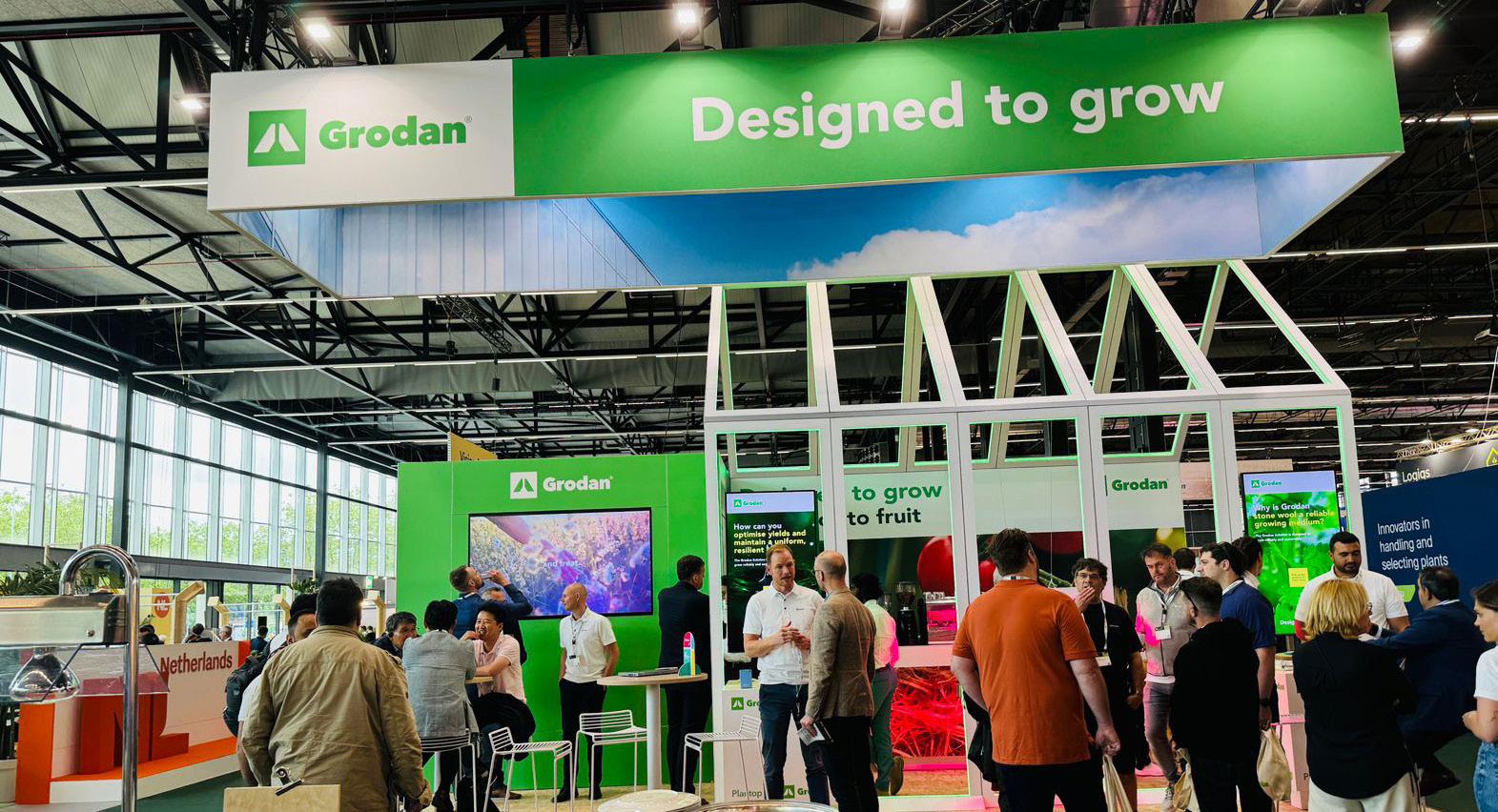
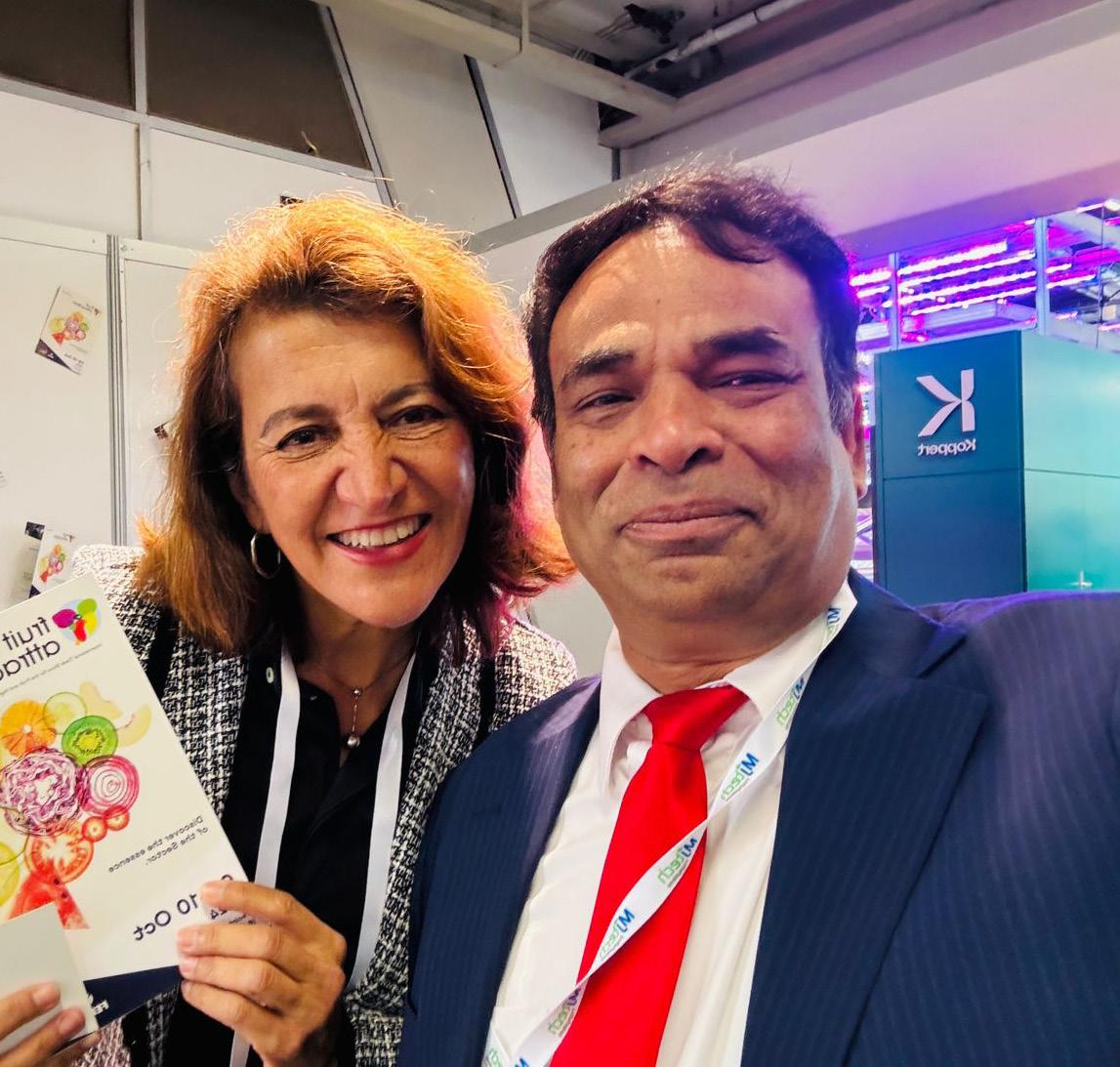


“Warmest, most productive and most straight to the point event. Really enjoyed it.“
Jonathan Lawson (Co-founder, Interius Farms, Canada): “We’re here to visit our international partners. It’s very exciting to be here as a Canadian company and visit European and North American companies, especially. Whether they’re breeders, whether they’re growers, whether they’re technology providers.”
Exhibitors say:
Mattijs Bodegom (Marketing communications Manager, Koppert, the Netherlands): “Whenever GreenTech takes place, it is the epic center of the industry. Professionals
from all over the industry gather, this is most beneficial to us.”
Xinghai Ni (Product developer MicroChain, Ningbo, China) Intelligent Technology Co., Ltd): “GreenTech is a great event to enter the global market. I am really happy with the amount of visitors who came by our stand at GreenTech.“
Stan Hoeijmakers (Sales and Marketing of Specialty Fertilizers and Biostimulants, Van Iperen International, the Netherlands): “We believe that GreenTech is really the marketplace for the horticulture industry. You will find fertilizer producer here, but also producers of the greenhouses. The entire market is here so that’s for
us an opportunity to show Van Iperen as a brand and our solutions.”
GreenTech Amsterdam 2025
The next edition of GreenTech Amsterdam will take place on Tuesday 10, Wednesday 11 and Thursday 12 June 2025 at RAI Amsterdam. The exhibition is a global meeting place for all horticultural technology professionals with the focus on the early stages of the horticultural chain and the current issues growers face. GreenTech is supported by AVAG, the industry association for the greenhouse technology sector in the Netherlands.
For 95 years, Lambert Peat Moss Inc. has been offering a wide range of peat-based products from various grade of Canadian Sphagnum Peat moss to one of our assorted ready to use professional mixes. Lambert Peat Moss has been dedicated to meet the special needs of professional horticulturists, nursery growers, greenhouse growers, vegetable producers or amateurs.
Because we want to meet and exceed the expectations of our customers, we make sure we choose only high-quality ingredients after a rigorous selection on the bench test by our quality control department. By selecting the best available
components, it’s a good start to produce “no worries” products for our customers!
In addition of our regular product line, Lambert Peat Moss also offers commercial growers its exclusive EcoPeatPlus+ ® , a highly fibrous natural wood fiber collected from our peat bogs. Depending on the characteristics you’re looking for, choose from our EcoPeatPlus+ ® as a standalone product or from our complete line of ready-to-use EcoPeatPlus+ ® Mixes (EPM). If you want exceptional balance of air space and water retention capacity, with superior structure longevity and minimal shrinkage, EPM mixes will be the best products to look for. The different
formulations are suitable either for interior or exterior production.
With our special way of screening and then blending our professional peat grade with those selected components, we can achieve a unique consistency for the professional growers. Lambert wants to make sure that your mix is always exactly the same, batch after batch, year after year. That consistency allows you to keep the same formula on site so you can produce successful crop. The best way to solve a problem is to make sure it will not appear!
That’s why quality is our top priority. Our quality control department performs continuous sampling and analysis during the
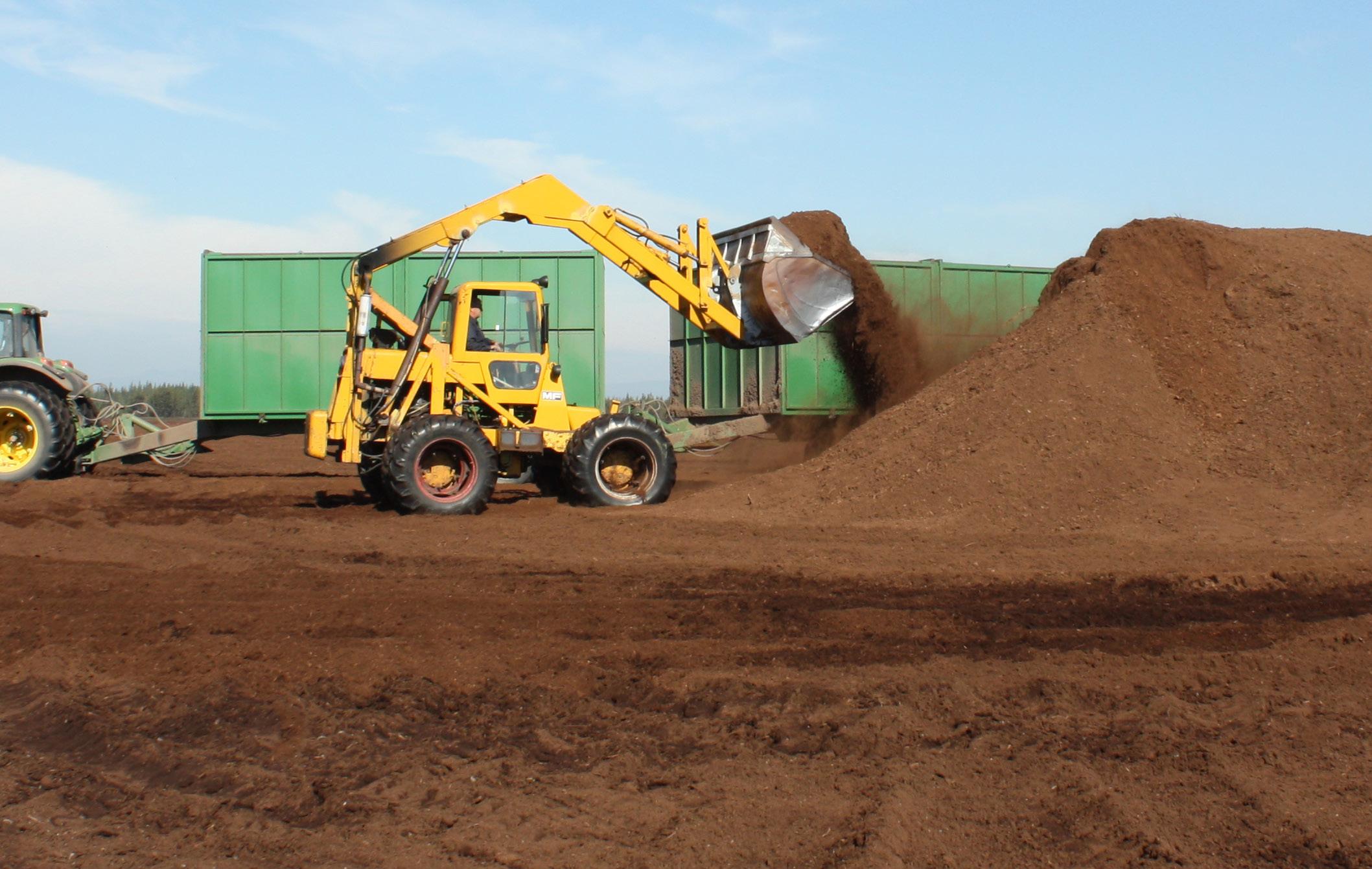
production of your mix. Each sample is analyzed for pH at three different incubation stages and the same for the electrical conductivity. Particle size distribution, moisture content and yield complete the criteria we constantly evaluate. We make sure that each cubic foot of your mix is in total conformity with all our specifications. If one of these points is not completely encountered, it will not be released for delivery by the laboratory staff. Only top-of-quality product will leave our yard!
However, as each nursery and greenhouse experiences various environment and each season are different, some “problem” or specific conditions can occur. Again, you can rely on Lambert’s team to help you resolve your issues. By customizing your mix for a specific rate of CRF formulation, incorporating a biofungicide or producing a specific pH order, to name a few, it makes your

"For 95 years, Lambert Peat Moss Inc. has been offering a wide range of peat-based products from various grade of Canadian Sphagnum Peat moss to one of our assorted ready to use professional mixes. Lambert Peat Moss has been dedicated to meet the special needs of professional horticulturists, nursery growers, greenhouse growers, vegetable producers or amateurs."
production easier. We own a complete on-site lab so we can perform soil analysis for you at different stages of your crop to see the evolution of the situation and target what’s going on. Wherever you are located, one of our sales representative team isn’t far away. With most of them experienced growers or nurseries owners themselves, in the past, they will be able to
listen about what you’ve been experiencing and help you gather information to find the perfect solution and resolve any issue.
Moreover, Lambert Peat Moss I nc. has developed a large efficient and versatile distribution network ready to make the impossible to deliver the product at your door in an incomparable timeframe. The constant commitment to improve and optimize its customer service allows Lambert Peat Moss Inc. to adapt quickly to the requirements of its customers. The skilled workforce and dedication of its staff ensure that it remains competitive, at the cutting edge of the technology and at the forefront of markets by offering incomparable quality products.
For more information, visit www.lambertpeatmoss.com
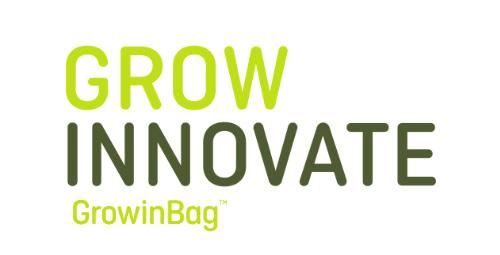

In the realm of gardening and horticulture, there's an increase trend that's capturing the imagination of both seasoned gardeners and novices alike: cultivating citrus fruit in grow bags. This innovative approach not only offers a practical solution for limited space but also unlocks a realm of productivity and exceptional quality that surprises even the most discerning cultivators.
In urban environments or areas with restricted outdoor space, the traditional notion of growing fruit trees may seem like a distant dream. However, the advent of grow bags has
transformed this perception entirely. These flexible, portable grow bags offer a versatile alternative, allowing citrus trees to flourish even in the most confined spaces like balconies, patios, or small backyards.
The magic of grow bags lies in their ability to mimic the natural environment of citrus trees while offering superior control over growing conditions. These bags are designed to provide adequate aeration, drainage, and root insulation, fostering healthy root development and minimizing the risk of waterlogging or root rot—the bane of many citrus growers. Furthermore, the absorbent nature of grow bags facilitates

air pruning, preventing roots from becoming root-bound and promoting the growth of a robust, fibrous root system. This enhanced root structure translates to better nutrient absorption and overall plant health, leading to an abundant fruit production.
Contrary to conventional wisdom, citrus trees grown in grow bags often outperform their counterparts in traditional
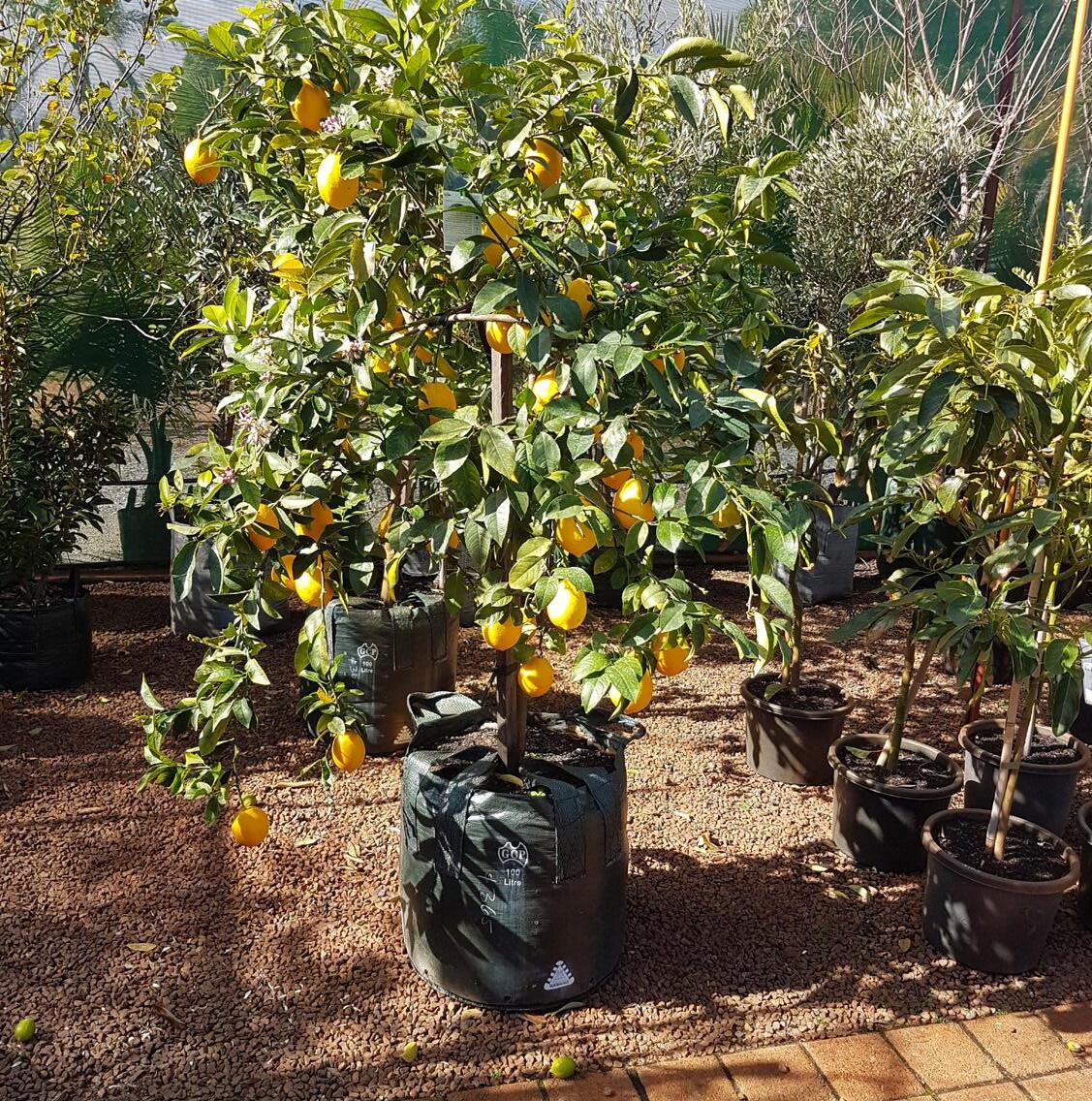
soil beds. The controlled environment offered by grow bags enables growers to optimize factors such as soil composition, watering schedule, and microclimate, leading to accelerated growth rates and earlier fruiting.
Moreover, the portability of grow bags allows for strategic placement based on sunlight exposure and microclimate variations, further maximizing productivity. Whether it's a sunny spot on the balcony or a sheltered corner in the garden, citrus trees in grow bags can adapt and thrive, yielding a bounty of juicy fruits season after season.
One of the most compelling aspects of growing citrus in grow bags is the exceptional quality of the fruits produced. The controlled growing environment, coupled with optimal nutrient uptake and root health, contributes to the development of fruits that are not only abundant but also bursting with flavor and essential nutrients.
Furthermore, the ability to monitor and adjust growing conditions throughout the plant's life cycle allows growers to fine-tune factors such as soil pH, nutrient levels, and water
The magic of grow bags lies in their ability to mimic the natural environment of citrus trees while offering superior control over growing conditions. These bags are designed to provide adequate aeration, drainage, and root insulation, fostering healthy root development and minimizing the risk of waterlogging or root rot—the bane of many citrus growers.
availability, resulting in fruits that are consistently sweet, juicy, and free from common blemishes or defects.
Beyond the realm of productivity and quality, growing citrus in grow bags offers environmental benefits as well. By utilizing space more efficiently and minimizing resource wastage, this method promotes sustainability and reduces the ecological footprint associated with traditional gardening practices.
Additionally, the use of organic growing mediums and natural fertilizers in grow bags further enhances their eco-friendly credentials, ensuring that the fruits produced are not only delicious but also environmentally responsible.
In the pursuit of cultivating citrus fruit, the adoption of grow bags represents a paradigm shift in horticultural practices. By harnessing the power of innovation and technology, growers can unlock a world of productivity, quality, and sustainability that transcends the limitations of traditional gardening methods.
For more information, visit www.growinnovate.com.au

With chronic droughts causing huge challenges for growers across North Africa, a Moroccan agrochemical company is bringing an innovative proven technology to the region that is cutting water use in agriculture up to 50%.
The technology, called Aqualatus, enables crop growers to make significant savings, cutting water, electricity and fertilizer use by as much as 50% while still increasing crop yields.
Morocco-based ARZAK ST, is working with UK-based Engage Crop Solutions who developed Aqualatus, to bring the technology to North Africa to ensure growers can continue to feed the continent while contending with growing drought emergencies.
Founder of ARZAK ST, Mohamed Zouini, says: “The water situation in Morocco, like the majority of the Mediterranean area, is becoming critical due to the continued drought emergencies.
“The Government is investing in desalination plants as it attempts to solve the crisis. However, it is urgent that we find new solutions that enable growers to reduce water use while still being able to grow the crops we need profitably.
“We have trialled Aqualatus in the region for four years and it is proving
to be invaluable for growers. Not only are they dramatically reducing the amount of water they use and improving yields, but they are also seeing major savings in fertiliser and energy use, helping to grow profits.”
Aqualatus, which is a unique technology to Engage Crop Solutions, is applied to irrigation systems and is a sophisticated blend of liquid Biodegradable Tri block Copolymers which contain billions of microscopic structures that adhere to soil particles and slow the gravitational movement of water and promotes lateral movement, thereby increasing the moisture-holding capacity of the soil and also improving soil quality. Aqualatus also oxygenates the soil and eliminates root asphyxia.
Surface runoff and evaporation are almost completely eradicated and gravitational movement is dramatically slowed. Reducing this natural water loss allows for irrigation volumes to be much lower and timings to be shorter as the soil is more retentive.
Aqualatus has undergone ten years of trials around the
world and is completely environmentally safe, completely breaking down in the soil after use. It is being used successfully by growers across the Middle East, Southern Europe and in Latin America. ARZAK ST is delivering the technology across Morocco and will next be working to introduce it in Tunisia, Guinea, Senegal, Mali and the Ivory Coast.
Some growers are reporting up to 65% savings in water use while still seeing yield increases and a trial with the Municipality of Dubai proved the city could save as much as $152m (1 billon 152 million dirham) a year when they used Aqualatus in irrigation systems for landscaped areas.
For more information, visit www.engagecropsolutions.com and www.arzakagro.ma
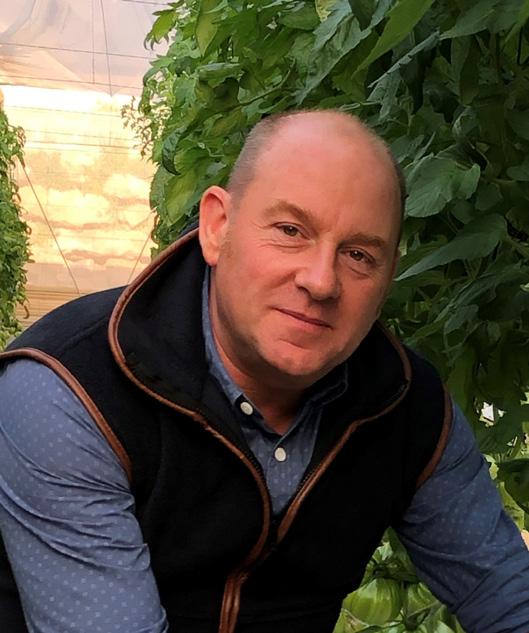

The company J. Huete Greenhouses has begun the construction of one of the largest greenhouse projects in Europe in 2024. This complex, fifteen hectares of gothic greenhouses, is intended to produce high-quality tomatoes using sustainable hydroponic techniques, and is located in the Region of Murcia, where it will be a reference project for the Spanish agricultural sector.
The 15 Ha complex is scheduled to be operational by next autumn. The greenhouses will have a height of 6 meters from the gutter and will reach 8.80 meters from the raised ridge, with overhead butterfly ventilation and perimeter ventilation on the sides and front.
Among the equipment included is plastic coating with some areas of UV
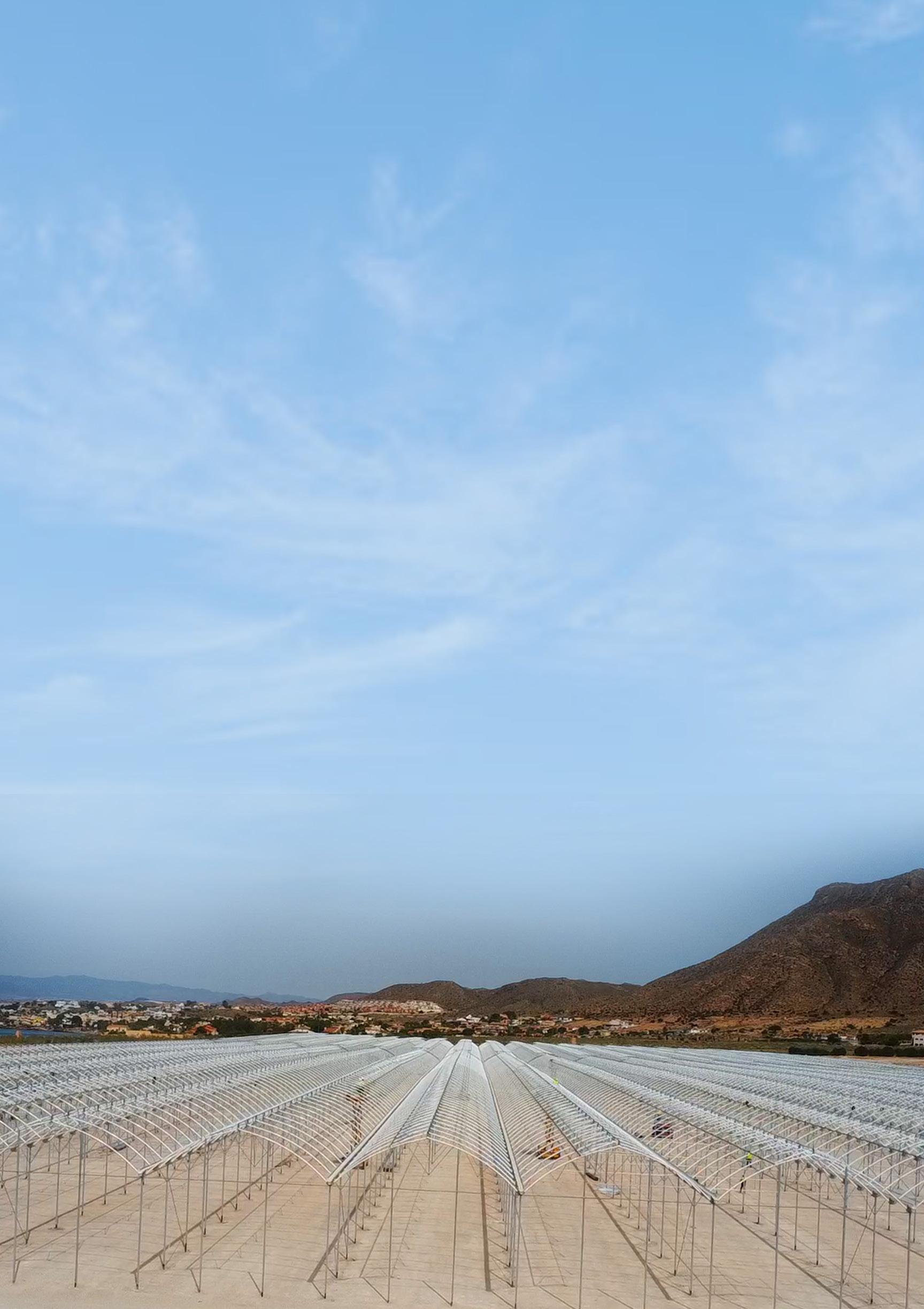
protection cellular plates, motorized rolling doors, energy-saving screens, climate control and a complete electrical system. In addition, the gutters will be lacquered in white on a Magnelis coating, which will provide greater luminosity and protection against oxidation. The arches and arms of the ventilation will also be lacquered in white to maintain an adequate temperature and improve the durability and luminosity of the plastic.
The project stands out for its hydroponic cultivation gutters hanging from the greenhouse, which incorporate a system for collecting drainage. This type of equipment allows the saving of irrigation water and fertilizers, ensuring healthy, tasty, and high-quality horticultural production, reflecting a comprehensive
approach towards sustainability and operational efficiency.
While progress is made on this ambitious project in Spain, J. Huete Greenhouses continues working in other countries. Currently, it is building greenhouses in Mexico for hydroponic strawberry production, a semi-enclosed plastic greenhouse in Colombia and two berry greenhouses in Australia. Recently, it has completed the construction of seed research greenhouses in South America, the remodeling of eight hectares of glass greenhouses, the construction of new research greenhouses in Spain and the launch of one of the most technical greenhouses in Europe in Portugal to produce Medicinal Cannabis.
For more information, visit www.jhuete.com
By : Roger Rabbat, partner Aya Hallak, principal
Amir Assi, manager, at Strategy & Middle East, part of the PwC network
Henry Gordon-Smith, CEO of Agritecture
The GCC agricultural sector faces sizable challenges, including water scarcity and a lack of arable land. Technological solutions can address many of these issues, but farmers are hesitant to invest in them without first seeing them work. One proven way to demonstrate the value of agricultural technology in the region is pilot farms. These offer a risk-free area in which farmers can test new technologies and agricultural practices first-hand. Countries that have established pilot farms have improved agricultural yields.
GCC agriculture faces environmental and technical challenges. Environmentally, the region includes three of the world’s five most water-stressed countries, which leads to around 70% to 80% of water drawn from the region’s aquifers being allocated to agriculture.

Moreover, the GCC possesses limited arable land, just 1.4% of its total area, and is more susceptible to climate change than other regions. These factors have a negative impact on productivity and yields. Despite notable increases in GCC livestock and crop production for key goods over the last 25 years, there is room for improvement. For example, technically some 80% of Saudi farms are small holdings that use outdated techniques and manual labor. Many farmers lack access to primary processing, storage services, linkages to market buyers, and the latest techniques. Government support for agriculture and increasing demand have driven higher output, but the GCC still imports roughly 85% of its food.
Fortunately, technologies are increasingly available to master these challenges. These include precision agriculture, hydroponics, vertical farming, aquaponics (raising fish in tanks), desalination and drip systems, agrivoltaics (simultaneous growing of crops and generating solar power), and robotics. These technologies can help GCC farmers to improve yields, reduce
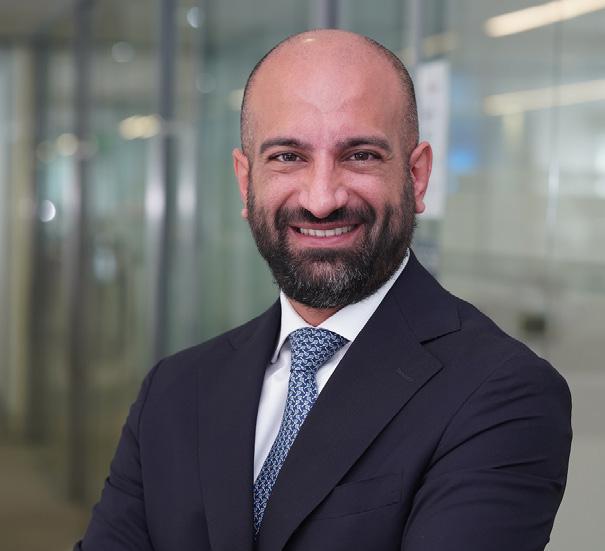
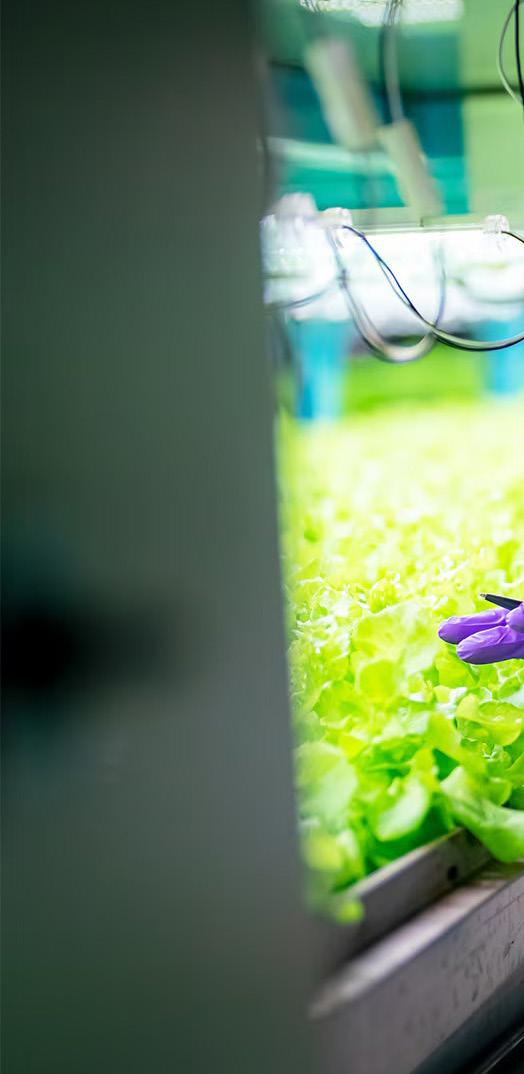
greenhouse gas emissions, and build production capacity. In agriculture, however, seeing is believing. Farmers can be skeptical of adopting technologies as they cannot experiment with their crops and livestock. They only adopt technology and techniques that they have experienced firsthand. For that reason, GCC governments can establish pilot farms in which farmers can learn about, and test, these technologies and techniques. Moreover, pilot farms can have an agritourism component where it can be used to highlight traditional agricultural practices that are part of the region’s culture and heritage. Pilot farms have succeeded in other regions. The United States Department of Agriculture operates a network of experimental farms to test and validate new methodologies, practices, and technologies. That USDA program has helped U.S. farmers implement new practices
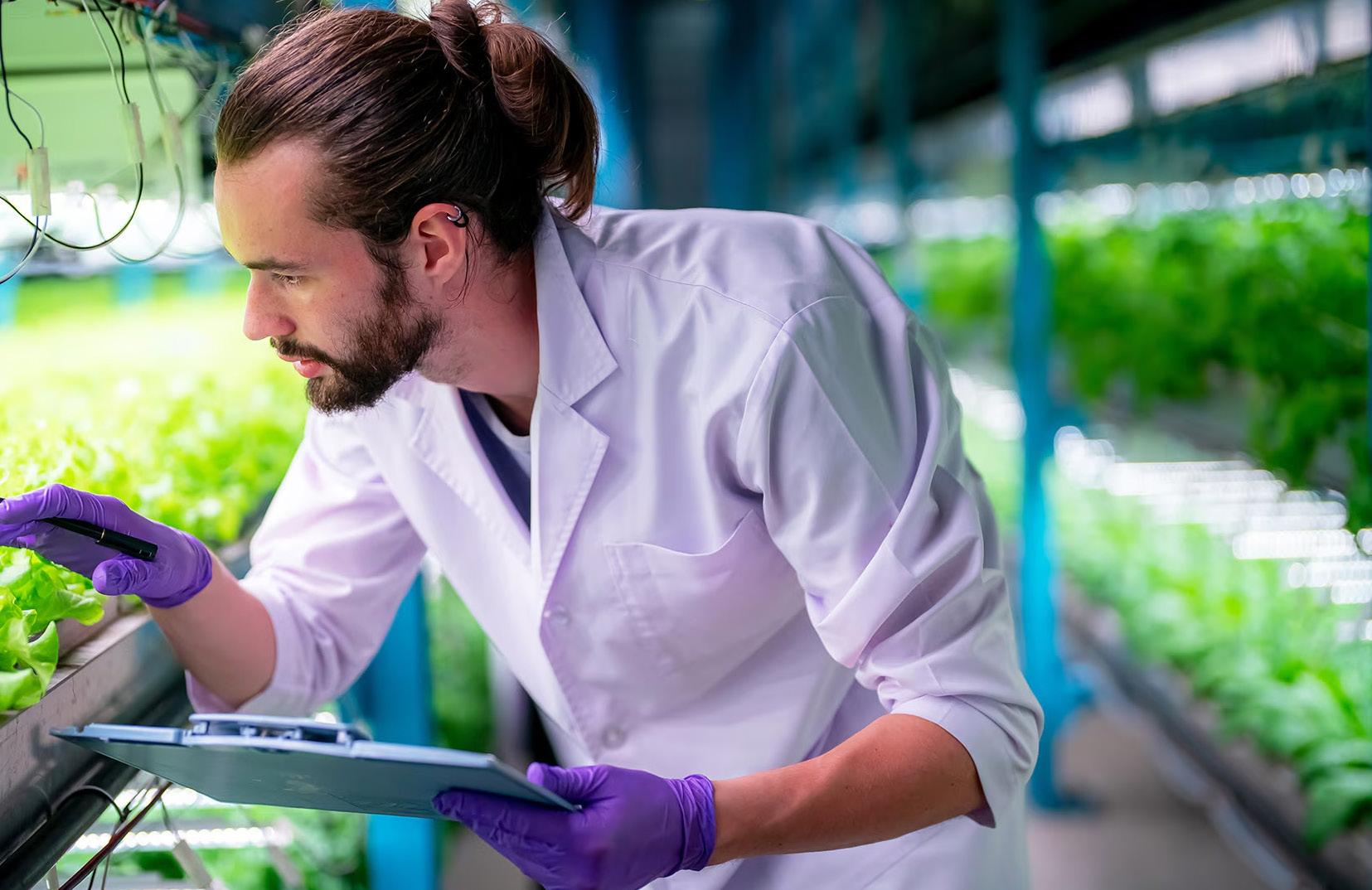
and technologies that led to significant growth in productivity in yield.
To introduce pilot the farm concept, GCC governments should consider three measures.
First, location, scale, and design matter. Governments should locate pilot farms near substantial concentrations of small famers. Also, pilot farms should be large enough to contain designated zones for various agricultural activities and demonstrations. For example, a pilot farm could include hydroponic greenhouses, equipped with advanced climate control systems and automated nutrient delivery mechanisms, to cultivate such high-value crops such cucumbers, leafy greens, and tomatoes.
Pilot farms can also be fitted with collaborative spaces designed for research collaboration, workshops, courses, and meetings.
The right design elements can also appeal to those farmers with a lower appetite and budget for
new technologies. Governments can equip pilot farms to educate such farmers about leading practices as a first step toward introducing them to new technologies. Moreover, governments can surround pilot farms with fields and activities dedicated to traditional agricultural practices that showcase the region’s heritage and that add an agritourism component to their value proposition.
Second, pilot farms should include adjacent processing facilities or hubs that can demonstrate key techniques and their benefits. We estimate that such activities can increase farmers’ revenue up to 50% depending on the type of product. These hubs also can liaise between farmers and buyers, alleviating the go-to-market challenges confronting small farmers. Stronger ties to buyers allow farmers to diversify their production, enhance product
"Pilot farms have succeeded in other regions. The United States Department of Agriculture operates a network of experimental farms to test and validate new methodologies, practices, and technologies. That USDA program has helped U.S. farmers implement new practices and technologies that led to significant growth in productivity in yield."
marketability, profitability, and quality, and reduce food waste.
Third, financial support from governments for pilot farms is needed. Pilot farms are a recent idea that require proof of concept to catch on. They are not designed to be profitable. Government support ensures that they can operate and focus on their main task of demonstrating new technologies to farmers and encouraging the adoption of leading practices. Governments can also offer financing solutions to farmers to allow them to adopt new technologies.
Pilot farms can help GCC farmers integrate modern technologies with traditional practices, thereby creating a more productive and sustainable agriculture sector. More broadly, they can play a pivotal role in helping the region’s agriculture sector advance.
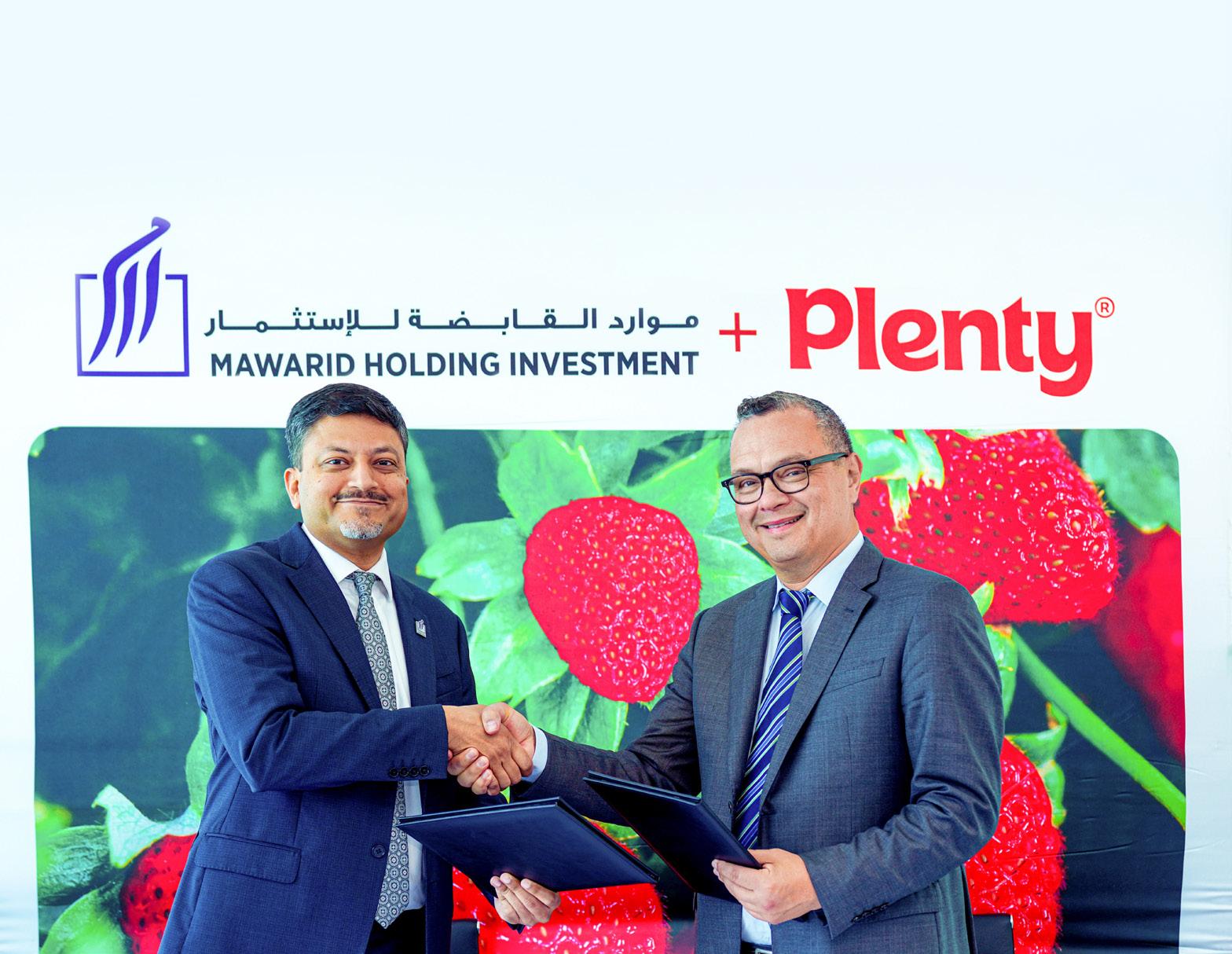
Plenty Unlimited Inc. (“Plenty”) and Mawarid Holding Investment (“Mawarid”)—a subsidiary of Alpha Dhabi Holding, a major publicly listed company on the Abu Dhabi Securities Exchange (ADX)—recently announced they have entered into an exclusive, multiyear, region-wide partnership to bring locally grown fresh produce to countries across the Gulf Cooperation Council (GCC). The joint venture Plenty and Mawarid have formed will invest more than AED500 million (US$130 million) into the
partnership’s first project in the GCC – an indoor vertical farm in Abu Dhabi, designed to grow more than 2 million kilograms of strawberries annually. The joint venture plans to develop up to five farms in the next five years, which would require investing up to AED2.5 billion (US$680 million) and bring thousands of direct and indirect employment opportunities to the region.
The Abu Dhabi farm will develop a year-round supply of berries with peak-season flavor for both the local
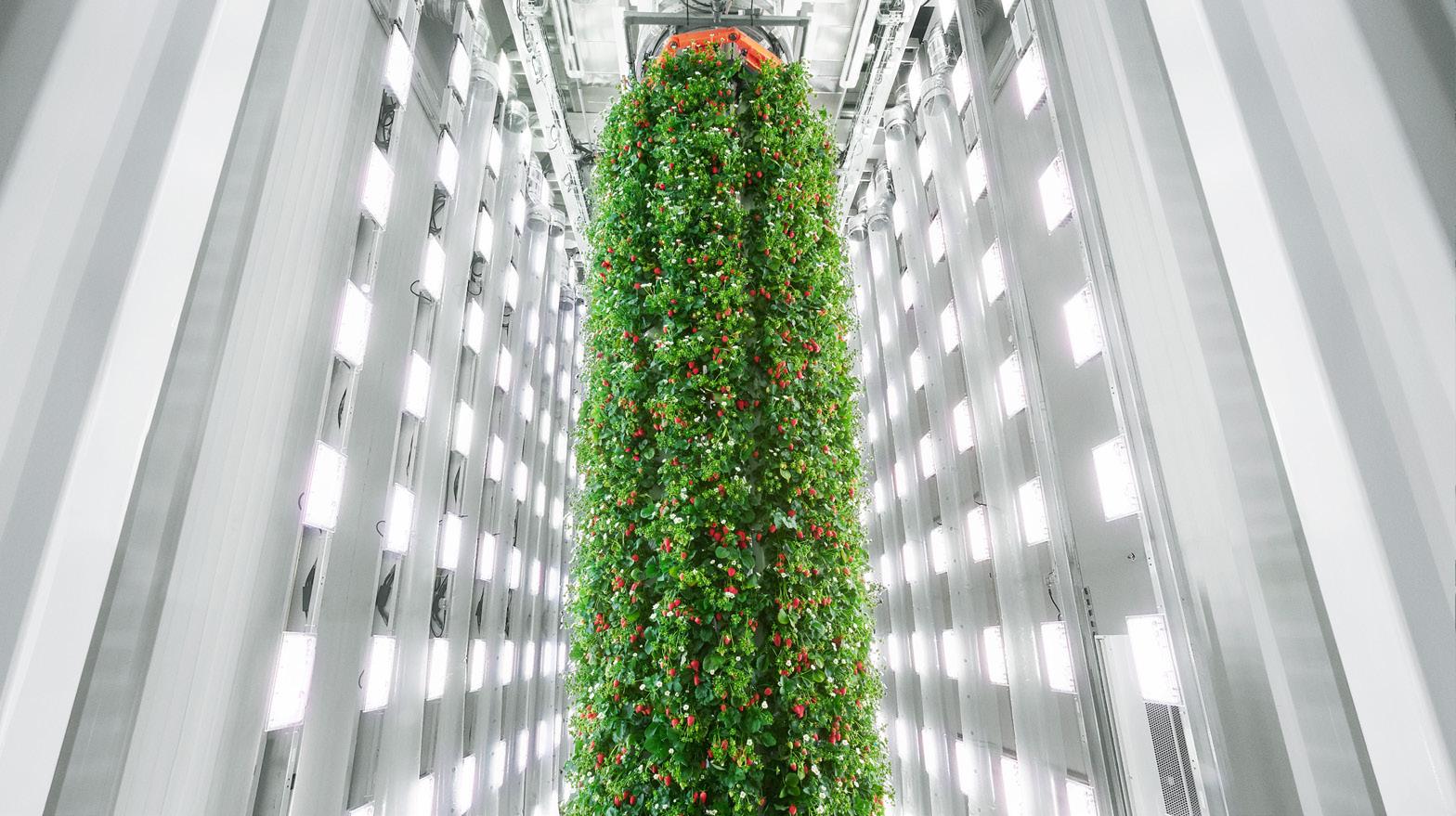
UAE market and export to other GCC countries, replacing air freight and reducing food miles compared to current imports. The farm’s complete production of strawberries is already precommitted to Plenty partner and global premium berry leader Driscoll’s, which will also contribute its proprietary genetics, global brand and extensive market experience.
“As part of our strategy to delight berry consumers around the world, we are excited to partner with Plenty and Mawarid on this pioneering project,” said Soren Bjorn, CEO of Driscoll’s.
“The Gulf region and the United Arab Emirates specifically have long been great markets for Driscoll’s, and this project will help ensure we can meet the demands of consumers in this market into the future.”
The new farm will be the world’s first commercial-scale vertical strawberry farm outside of North America, following the opening of Plenty’s first strawberry farm in Virginia later this year – also in partnership with Driscoll’s. Construction on the Abu Dhabi farm–which will be approximately 7,500 square meters (81,000 square feet)–is targeted to be completed in late 2026.
“Mawarid has increasingly focused on adopting cutting-edge technologies in support of the UAE mandate to build innovative food security capabilities,” said Mr. Kashif Shamsi, Group CEO of Mawarid.
“Our global search for a sustainable solution to the challenges we face in the Middle East led us to the incredible team at Plenty. This joint venture enables us to leverage the most advanced farming technology in the world to grow local food supply throughout the GCC, beginning with our home market in Abu Dhabi, while preserving our precious natural resources.”

Urban Crop Solutions (UCS) has
undertaken a project for a client focused on cultivating microalgae in an indoor farming environment. After an extensive search for suitable indoor farming partners, UCS was selected to meet the specific needs of the client. UCS's slogan, "We build your indoor farm to your specifications!" facilitated the connection for a tailored solution.
The client's goal is to produce microalgae to enhance the sustainability of its business. To further improve its production, acustomized controlled indoor farm, which can later be scaled, is essential. After a detailed technical analysis, UCS presented a design that met all the requirements. UCS designed and built a unique fertigation and irrigation system, including a customized dosing

capability to meet specific needs. With the implementation of the spectrum-adjustable LED lighting, the full extent of innovation and collaboration became clearly visible. This advanced LED lighting offers the ability to adjust the light spectrum to the specific desires and needs of the client.
Jean-Pierre Coene, CEO of Urban Crop Solutions, spoke enthusiastically about the collaboration: "This collaboration shows how customization and innovation can go hand in hand to meet specific needs. It is a pleasure to see how our technology contributes to the growth and success of our partners."
The client also expressed its satisfaction: " We are pleased with the quality of the cooperation and impressed by the precision and attention to detail. The customized solution provided by Urban Crop Solutions has exceeded our expectations and represents a promising device to continue the industrial scaling of our production."
This collaboration highlights the power of customization and trust in creating innovative solutions within the indoor farming industry. A solution that, alongside innovation, must be scalable and commercially viable for growth.
For more information, visit www.urbancropsolutions.com
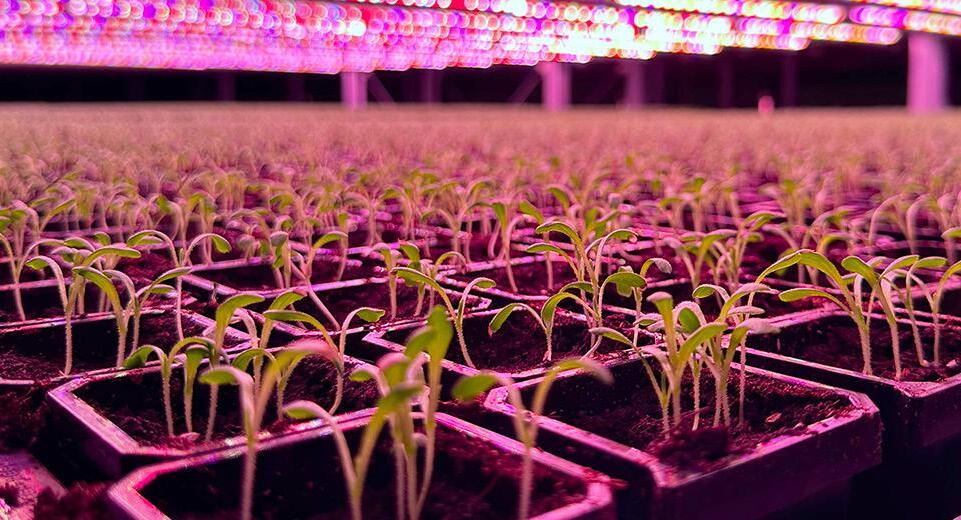
Bloemteknik (t/a Bloem), an innovative provider of customised horticultural lighting solutions, is excited to announce its strategic partnership with Ecopromt, a pioneer in the design and construction of vertical farms. Together, the two companies will collaborate to offer tailored lighting solutions for vertical farm operators worldwide.
Lighting plays a pivotal role in the success of vertical farming. Through this partnership, Bloem and Ecopromt will leverage their respective expertise to provide vertical farmers with customised lighting, tailored to their unique objectives, crop requirements and infrastructure.
"Our partnership with Ecopromt
marks a significant milestone in our commitment to advancing controlled environment agriculture through innovative lighting solutions," said James Fleet, Co-Founder and CEO of Bloem. "By combining our expertise in horticultural lighting with Ecopromt's design & build innovation, we aim to empower vertical farm operators with the tools they need to enhance crop quality, increase yields, whilst optimising cost-of-ownership.”
Ecopromt's CEO, Anders Wennerbäck, echoed these sentiments, stating, "We are thrilled to partner with Bloem to bring customised lighting solutions to the vertical farming industry. By integrating Bloem’s Align Platform
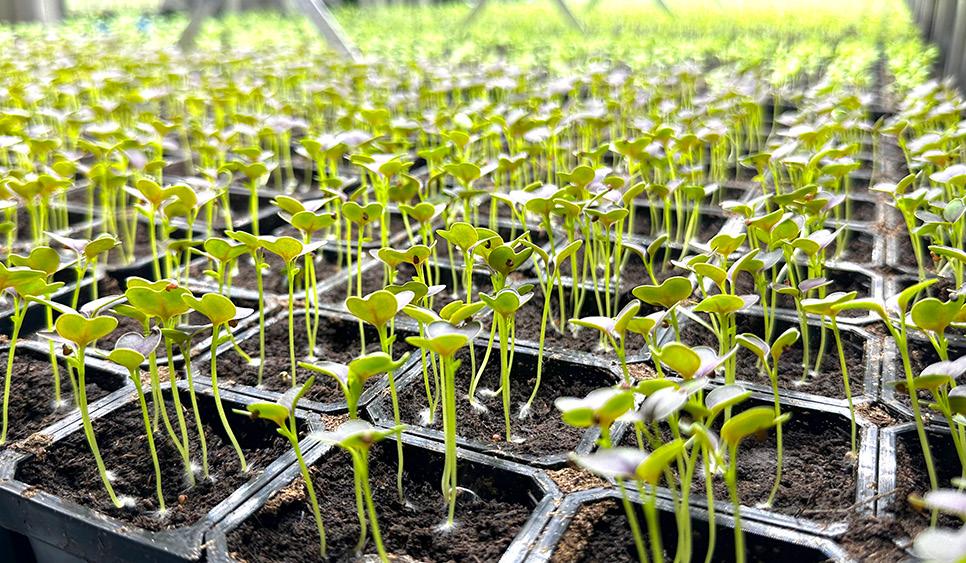
with Ecopromt's vertical farm innovation, we are poised to revolutionise the way crops are grown in vertical farms, making controlled environment agriculture more efficient, productive, and environmentally friendly."
Engineered with collaborative customisation at its core, the Align Platform offers unrivalled performance by enabling growers to tailor every aspect of their lighting solution:
• Customised spectra to your specific crop variety.
• Tailored PPFD tuned to your cultivation strategy.
• Fixture dimension & system configuration customised to your multi-layer, gutter & cart.
• Bespoke optical design to optimise intensity & colour uniformity within the specified headspace.
• AC & DC electrical configurations to align with the grower’s preferred power supply infrastructure.
• Customised mounting solutions to accelerate installation & facilitate simple maintenance.
Case IH is incorporating industry-leading technology with the heritage of Axial-Flow® combines as the perfect harvesting partner for a wide variety of growers and custom harvesters with the new Axial-Flow 260 series. Purposefully designed for unparalleled productivity, growers can access subscription-free, integrated technology to meet the unique needs of their operations.
The premium technology built within the Axial-Flow 260 series combine sets a new standard for operator experience, while also maximizing throughput and grain handling with singlerotor Case IH harvesting technology.
“The Axial-Flow 260 series combine represents a significant leap forward in integrated technology throughout the harvesting process for growers,” says Leo Bose, harvesting segment

lead at Case IH. “We purposefully bundled precision technologies so there are no subscriptions or activations required to run the machine. The subscription-free connectivity gives customers the ability to remotely view machine and agronomic data via the new Case IH FieldOps™ platform, which will launch later in 2024. The technology stays for the lifetime of the hardware, boosting resale value.”
The Axial-Flow 260 series is equipped with Harvest Command™ combine automation, which automatically optimizes settings to maximize throughput and grain quality, and features high-resolution Pro 1200 Dual Displays, giving operators easy access to machine metrics, field performance and grain quality in real-time. Additionally, growers can experience improved on-row
accuracy, minimized header losses and less operator fatigue with the all new RowGuide Pro™ and AccuGuide™ autoguidance systems to maintain on-row accuracy even when stalks aren’t present. These tech solutions, including AccuSync™ with in-field data sharing between multiple machines, are all provided with no subscription required.
“The Pro 1200 Dual Displays give me complete visibility with all my combine data on one monitor and coverage maps on the other, so I’m no longer flipping back and forth between screens,” says Paul Paplow, farmer, custom harvester and vice president at U.S. Custom Harvesters, Inc. “Within just five minutes of using the AxialFlow 260 series, with its realtime grain quality imaging feature, I could see the difference in superior grain quality.”
For more information, visit www.caseih.com
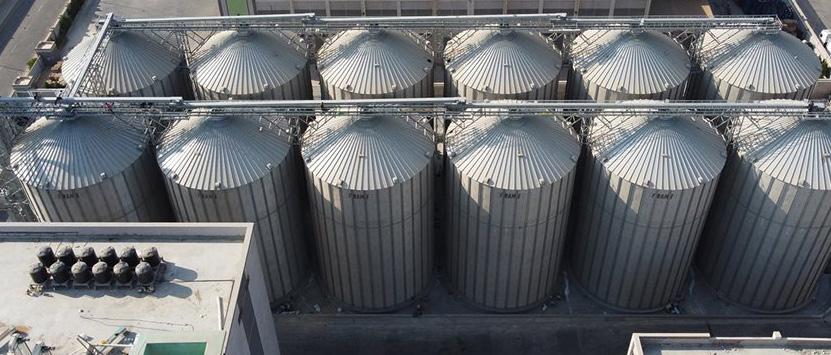
With over 30 years of experience in grain storage and handling,
AGI EMEA is one of Europe’s largest and most respected manufactures of all types of corrugated steel silos for commercial and agricultural applications. Their complete catalog includes, catwalks, ladders, platforms, as well bucket elevators, chain conveyors, temperature sensing, sweeps, weighing, bagging and dryers. From the first design, to manufacturing and installation, customers trust AGI EMEA to partner with on their projects around the world.
With three modern and highly efficient, state of the art facilities in Italy, AGI EMEA is home to some of the most recognized brands, AGI FRAME, AGI PTM and AGI Hi Roller.
AGI EMEA’s experience and skilled team of in-house engineers make
for the right partner, from the first design, to manufacturing and the final installation. AGI delivers custom systems and solutions across a range of applications and industries, from small farms to industry grain traders, millers, feed mills and large port facilities.
AGI EMEA has installations in over 34 countries with various climate conditions from Africa to Ukraine. Our customers trust our experience and equipment for their project needs.
AGI FRAME
AGI FRAME is one of Europe's leading designers and manufacturers of agricultural steel silos including round and rectangular hoppers, sweep and discharge augers, mechanical handling equipment ranging from chain and flight conveyors to bucket
elevators, cleaning, drying and other equipment associated with both commercial and cereal storage systems.
AGI PTM
Based in Italy, AGI PTM Technology is a leader in design and manufacturing of grain handling equipment, including chain or belt conveyors, bucket elevators and filters for intake pits.
AGI Hi Roller
AGI Hi Roller® manufactures a line of premier commercial enclosed, dust-tight and self-reloading conveyors, designed for installation in grain handling facilities, soy and corn processing operations and industrial operations.
For more information, visit www.aggrowth.com/emea

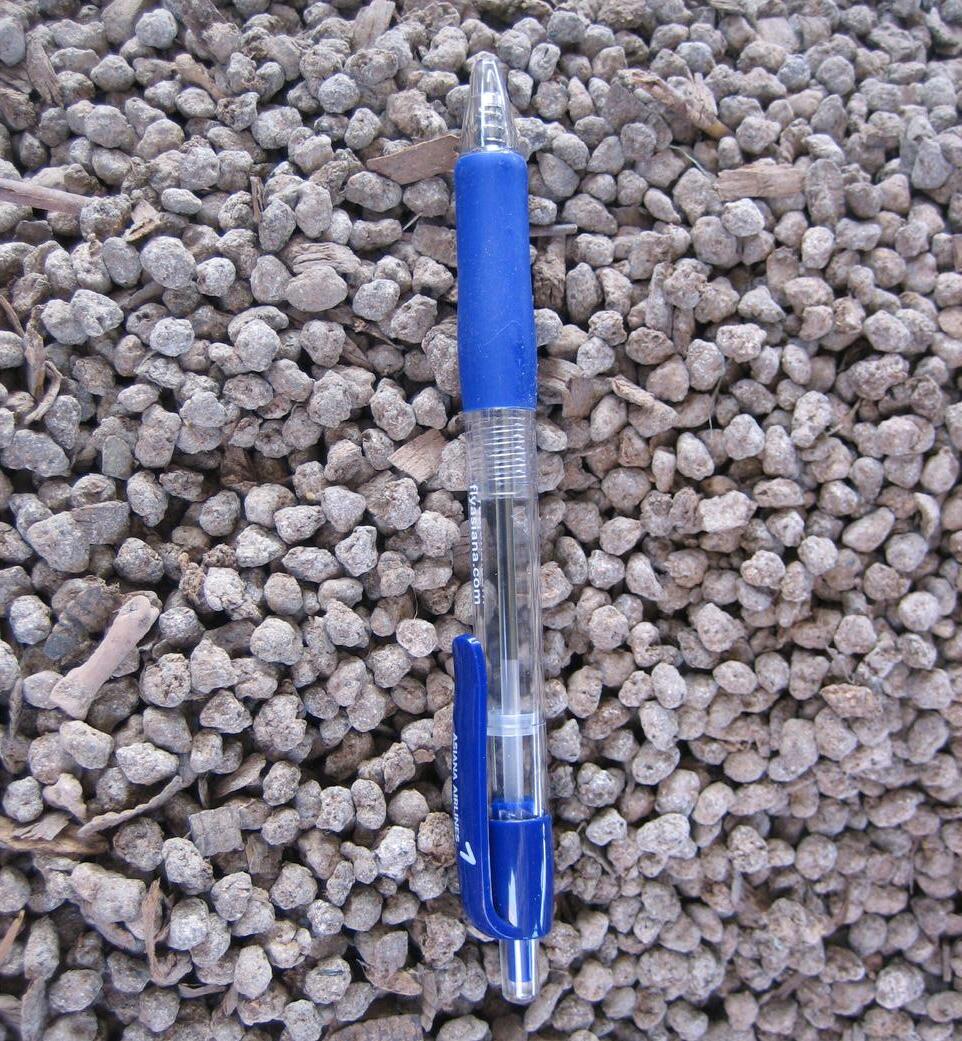
When it comes to countries with hot and dry climates, we, Kohshin Engineering, often observe the same issue: farmers prefer to dry organic waste or manure instead of composting it. Many believe that dried manure is a beneficial way to nourish their soil. However, experience shows that it has the opposite effect. Instead of enhancing soil health, it reduces crop yields and makes the soil less fertile. Why does this happen? Let's learn more about the differences between
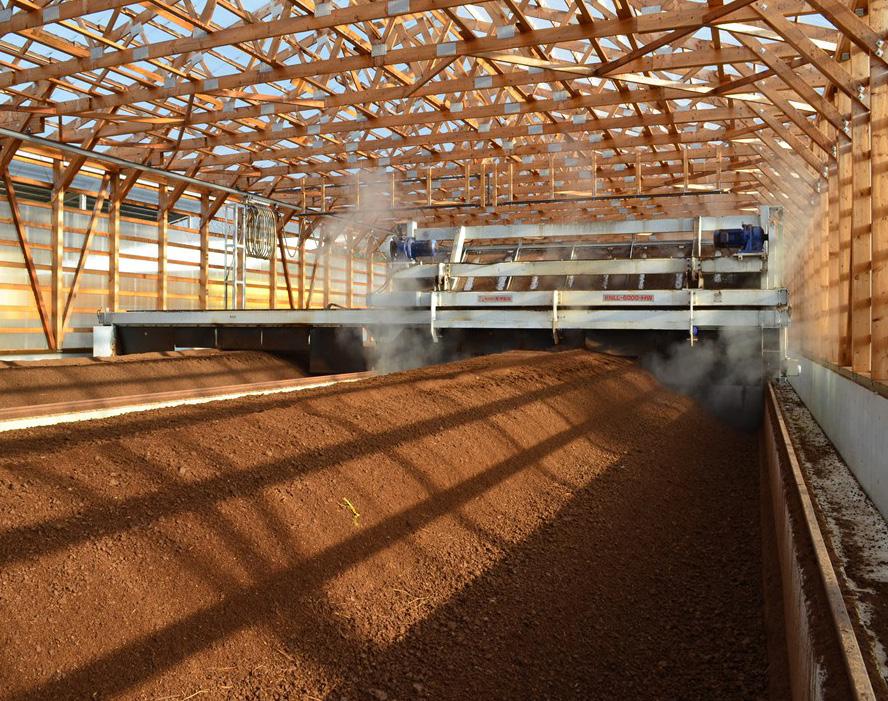
composting and drying methods of manure treatment.
Dried manure can be harmful to plants because it has a high salt concentration and can lead to nitrogen leaching. When manure dries, moisture evaporates and leaves behind concentrated salts like sodium chloride and potassium chloride. Over time, this buildup of salts causes soil salinity to increase, which can deprive plant roots of water, causing them to dehydrate and become damaged. Additionally, these salts can interfere with the plant's ability to absorb other nutrients. Although dried manure contains beneficial nutrients initially, it can release nitrogen too quickly when applied to the soil, leading to nitrogen leaching and potential groundwater contamination.
In contrast, composting is a controlled process where microorganisms break down organic materials, including manure, into stable compost rich in humus. This process stabilizes nitrogen, allowing plants to receive nutrients
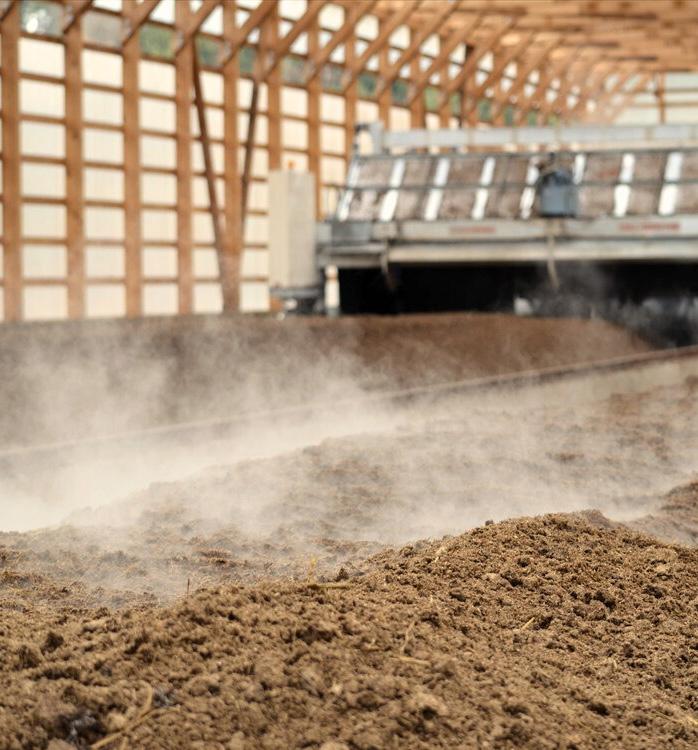
gradually, thereby minimizing environmental risks.
Composting also enhances the water retention capacity of dry soils, making it especially beneficial in regions with low rainfall. This not only promotes healthy plant growth but also helps conserve water resources.
In simple terms, dried manure can harm plants and degrade soil health. Additionally, when manure gets wet, it produces a bad odor that makes surrounding areas unpleasant. On the other hand, composted manure acts as a soil amendment that enhances soil health and fertility while producing a more natural smell when wet.
To support farmers and promote a sustainable environment, we have designed specialized composting equipment that transforms bio-waste into premium, pathogen-free organic fertilizer. We believe that, together, we can make the world a better place by improving soil health and increasing productivity!
For more information, visit www.kohshin-s.jp
The importance of organic farming in livestock breeding extends far beyond the immediate benefits to animals and consumers. It represents a holistic approach to agriculture that prioritizes environmental sustainability, animal welfare, and human health. By adopting organic practices, farmers can create a more resilient and sustainable food system, ensuring the well-being of future generations
Article By: Mathews Mathew, Editor
In recent years, organic farming has become a critical focus in the agricultural industry, emphasizing sustainability, environmental responsibility, and animal welfare.
This shift has been particularly pronounced in livestock breeding, where the adoption of organic practices has shown significant benefits. The importance of organic farming in livestock breeding cannot be overstated, as it encompasses not only the health and wellbeing of the animals but also the


broader impacts on the environment and human health.
At the core of organic livestock breeding is a commitment to superior animal welfare. Organic farming standards ensure that animals are raised in environments that allow them to express natural behaviors. For instance, organic livestock must have access to outdoor spaces, which is a stark contrast to the confined conditions often seen in conventional farming. This freedom to roam reduces stress and promotes healthier, more active animals. Furthermore, organic livestock farming prohibits the use of antibiotics and growth hormones.
Instead, farmers rely on natural remedies and preventive care to maintain animal health.
This approach not only prevents the development of antibioticresistant bacteria but also ensures that the animals grow at a natural pace, which can lead to better overall health and longevity.
One of the most compelling reasons to adopt organic farming practices in livestock breeding is its positive impact on the environment. Conventional livestock farming is a significant contributor to environmental degradation, including soil erosion, water pollution, and greenhouse gas emissions.


Organic farming, on the other hand, employs practices that enhance soil health, conserve water, and reduce carbon footprints.
Organic livestock farming typically involves rotational grazing, where animals are moved between pastures. This practice helps maintain healthy grasslands, prevents overgrazing, and promotes biodiversity.
Healthy pastures can sequester carbon, mitigating climate change. Additionally, organic farms avoid synthetic fertilizers and pesticides, reducing the risk of water contamination and preserving
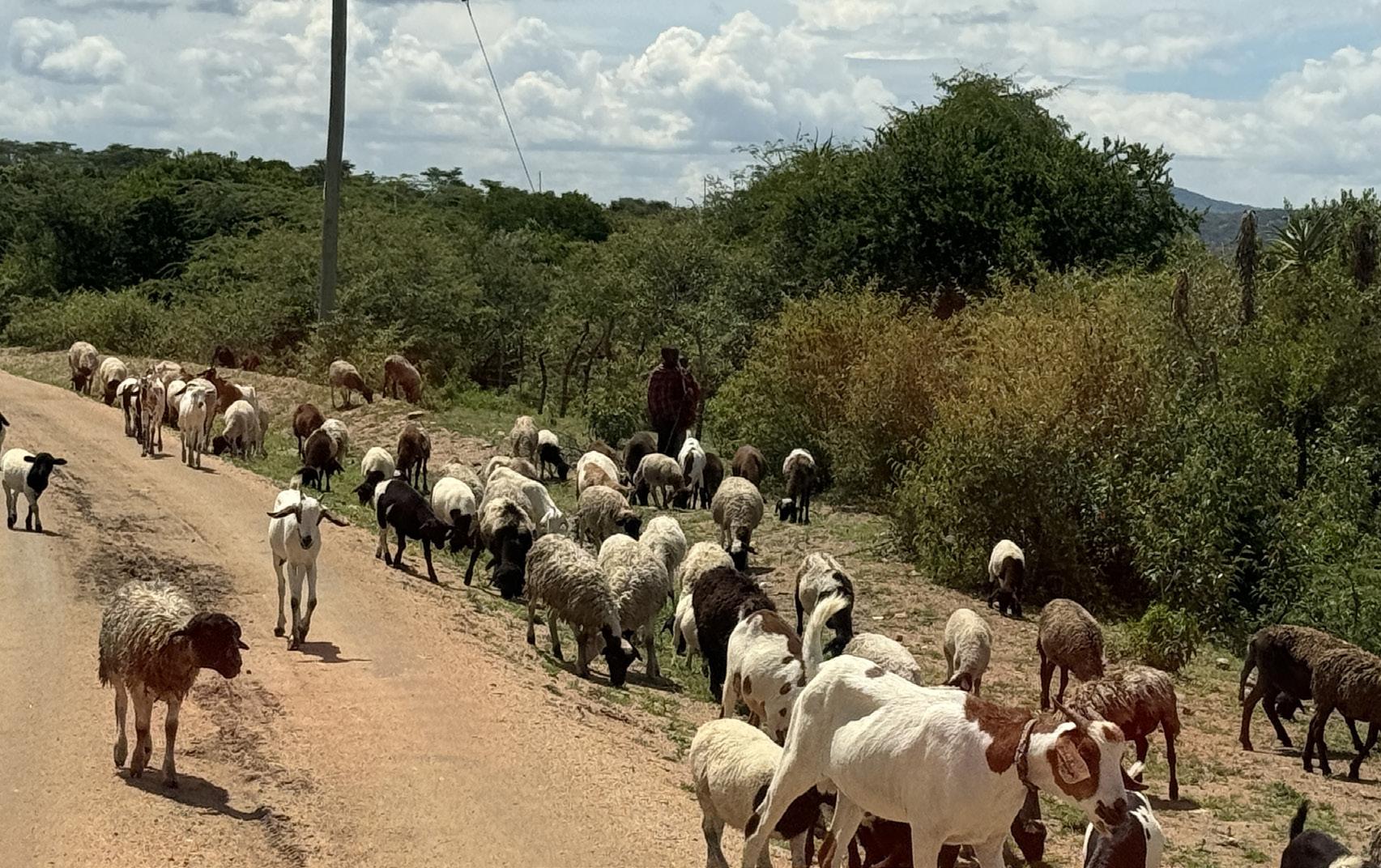
the quality of local water resources.
Consumers are increasingly concerned about the quality and safety of their food, and organic livestock products address these concerns. Organic meat, dairy, and eggs are free from synthetic additives, hormones, and antibiotics, making them a healthier choice for many.
Studies have shown that organic products often contain higher levels of essential nutrients, such as omega-3 fatty acids, which are beneficial for heart health.
Moreover, the absence of antibiotic residues in organic products reduces the risk of antibiotic resistance, a significant public health concern. By choosing organic, consumers are not only investing in their health but also supporting farming practices that prioritize the well-being of animals and the environment.
While transitioning to organic livestock farming can be challenging and initially costly, it can lead to economic benefits in the long run. Organic products often command higher prices in the market, providing farmers with better income opportunities.
This price premium reflects the added value of organic practices,
including better animal welfare, environmental stewardship, and improved product quality.
Moreover, organic farming can reduce long-term costs associated with chemical inputs and veterinary care. Healthier animals are less likely to require medical intervention, and sustainable farming practices can enhance soil fertility, reducing the need for expensive fertilizers. Over time, these savings can offset the initial investment in organic certification and infrastructure.
Biodiversity is a cornerstone of organic farming, benefiting both the farm ecosystem and the broader environment. Organic livestock farms often maintain diverse habitats, including woodlands, wetlands, and wildflower meadows, which support a wide range of plant and animal species. This biodiversity helps control pests naturally, reducing the need for chemical pesticides.
In addition, organic farming practices encourage the use of heritage breeds in livestock breeding. These breeds, often more resilient to local conditions and diseases, contribute to genetic diversity, which is crucial for the long-term sustainability of livestock populations.

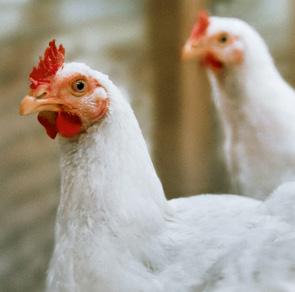
Newcastle disease (ND) is a contagious viral disease affecting commercial poultry worldwide, resulting in performance problems and significant economic losses due to regular outbreaks, decreased egg production and high mortality.
Genotype VII velogenic Newcastle disease virus (NDV) strains, which have been frequently reported across the globe since the 1990s, are the predominant concern in Asian countries. They are also prevalent in the Middle East, and North and South Africa.
Ensuring protection against a broad range of ND virus types is important. In unvaccinated birds, Genotype VII can cause high morbidity and mortality, reaching 100% in commercial broilers, layers and breeders, said CK Mah, DVM, global commercial development livestock lead for Asia, Zoetis.
“NDV Genotype VII is often further divided into subgenotypes, some of which are extremely velogenic (aggressive and dangerous),” Mah said. “The symptoms and lesions induced by NDV vary, but without timely and appropriate interventions, significant losses are inevitable.”
“The introduction of recombinant vector vaccines with a herpesvirus of turkeys (HVT) carrier made them
valuable tools to veterinarians and production managers to address this evolving threat because they have proven to be effective at inducing a robust immune response,” said Sing Rong, PhD, senior research director, Zoetis.
“Several key factors are involved in the development of a good recombinant vector vaccine, including where the F protein will be inserted into the HVT genome,” Rong said. “Where you insert not only impacts the stability of the viruses, it impacts the efficacy so the insertion site is important.”
Other important factors include selection of the best expression cassette that includes the F protein antigen sequence, the promoter — which goes in front of the sequence to drive expression of the antigen — and a poly A DNA sequence at the end of the cassette.
“You want a strong promoter to have good antigen expression, but you don’t want it too strong,” Rong said. “If it is too strong, that can lead to instability, so different promoters have to be tried to find the best one.” Vector vaccines do not interfere with maternal antibodies, and in the case with Poulvac® Procerta® HVTND, onset of immunity is seen at 19 days of age.
For more information, visit www.PoulvacProcerta.com
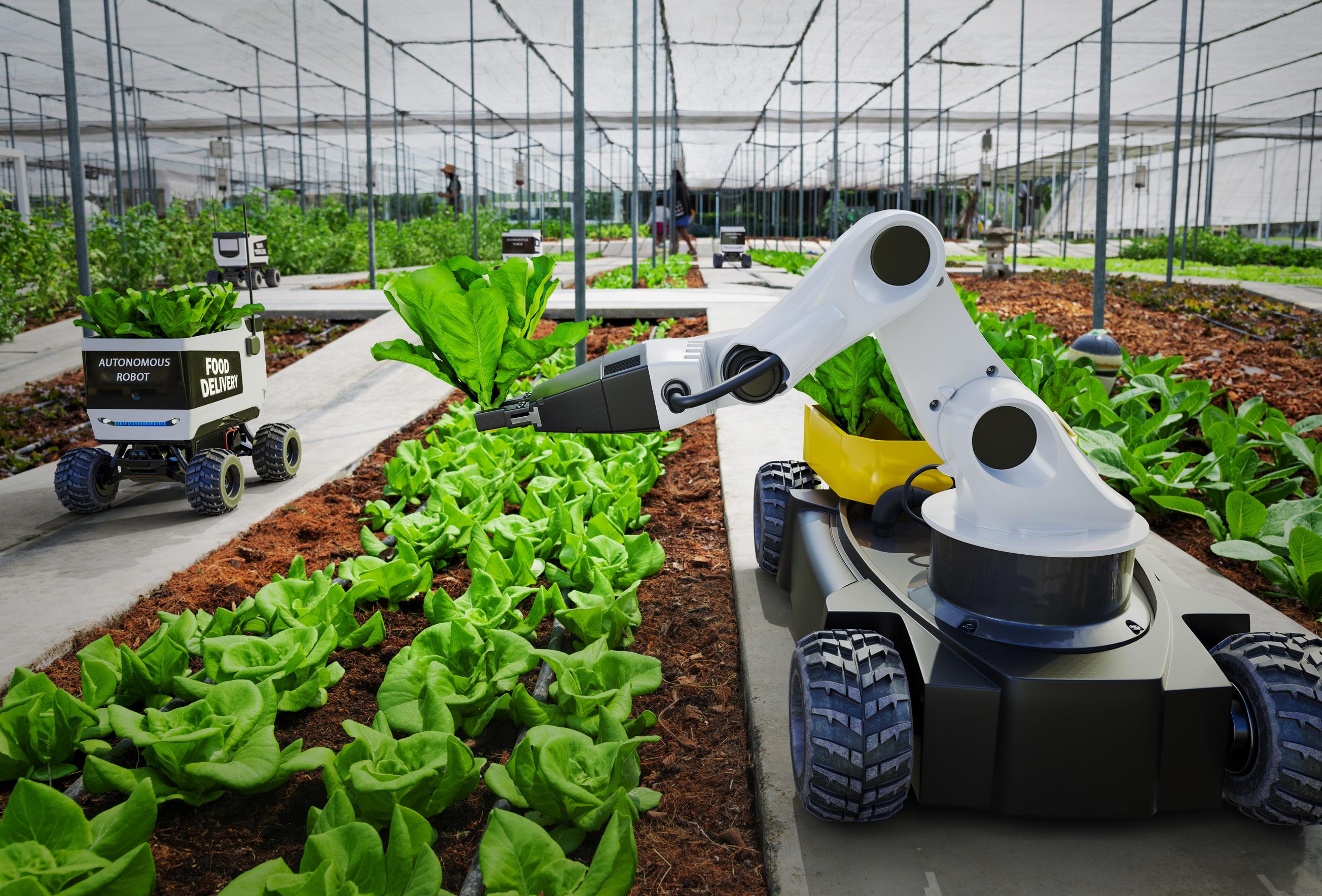



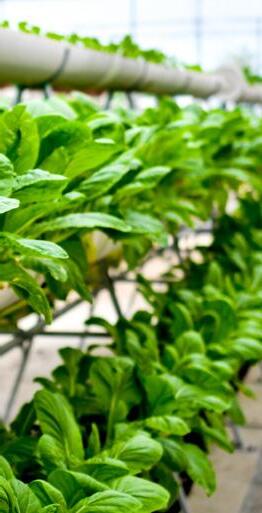
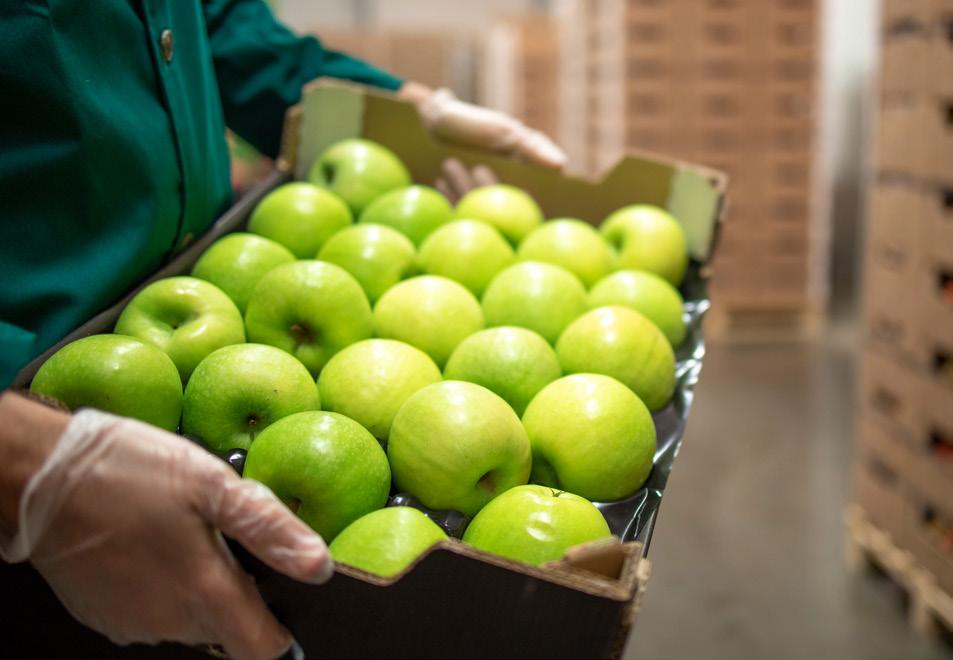
24-26 SEPT 2024
DUBAI WORLD TRADE CENTRE
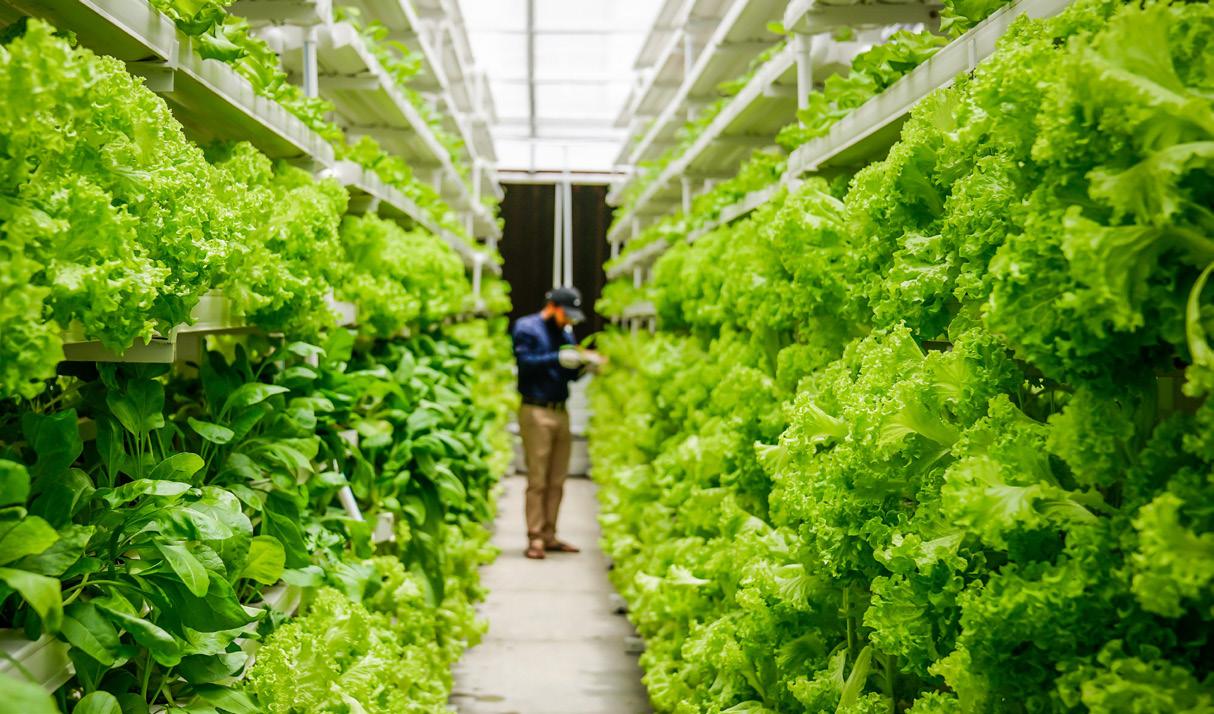

Gulfood Green will provide an indispensable global platform for the entire food ecosystem to exchange on technology, regulations, practices, solutions and changes in consumer food culture.
The overarching goal is to achieve sustainability in all its dimensions: from farmers, to supply chains, food production, mindful consumption and Fourth Industrial Revolution technologies such as artificial intelligence, blockchain and smart agriculture.